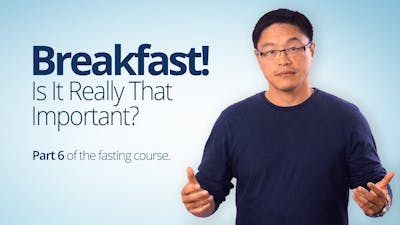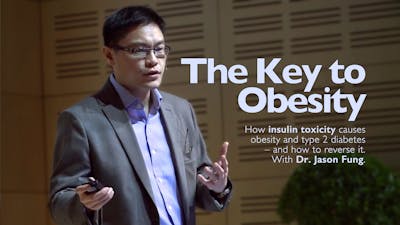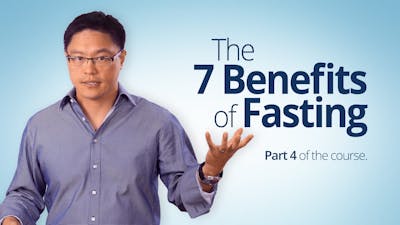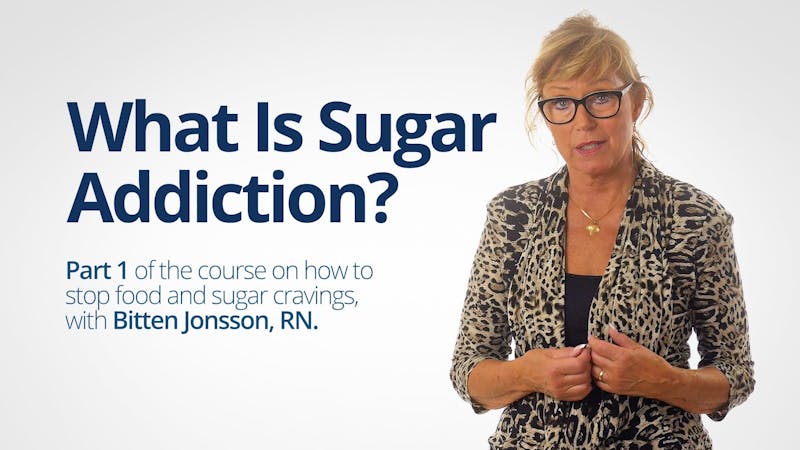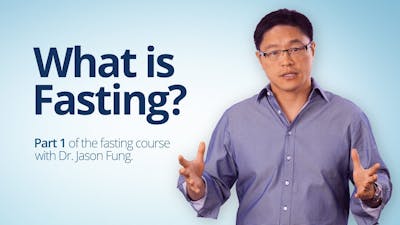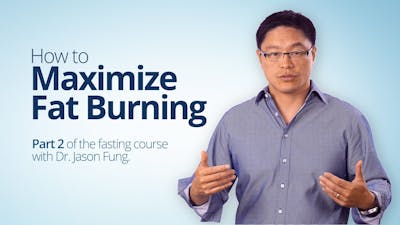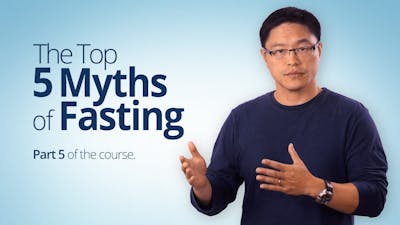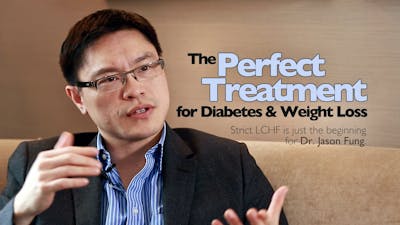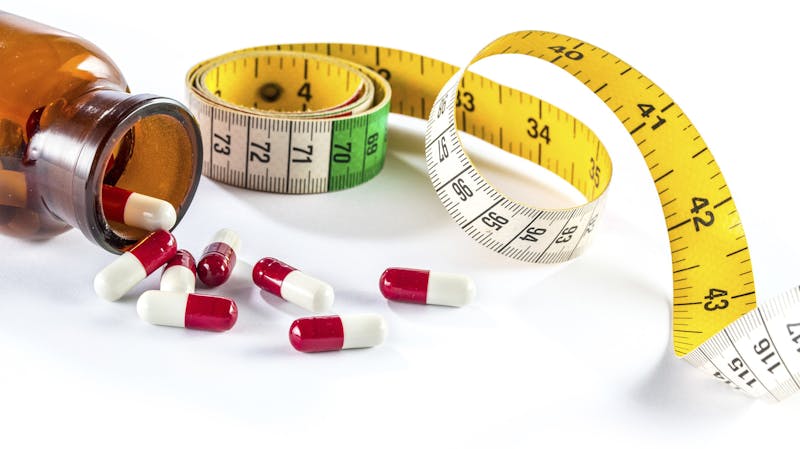How to Lose Weight Fast: 3 Simple Steps, Based on Science
There are many ways to lose a lot of weight fast.
However, most of them will make you hungry and unsatisfied.
If you don't have iron willpower, then hunger will cause you to give up on these plans quickly.
The plan outlined here will:
- Reduce your appetite significantly.
- Make you lose weight quickly, without hunger.
- Improve your metabolic health at the same time.
Here is a simple 3-step plan to lose weight fast.
1. Cut Back on Sugars and Starches
The most important part is to cut back on sugars and starches (carbs).
When you do that, your hunger levels go down and you end up eating much fewer calories (1).
Now instead of burning carbs for energy, your body starts feeding off of stored fat.
Another benefit of cutting carbs is that it lowers insulin levels, causing your kidneys to shed excess sodium and water out of your body. This reduces bloat and unnecessary water weight (2, 3).
It is not uncommon to lose up to 10 pounds (sometimes more) in the first week of eating this way, both body fat and water weight.
This is a graph from a study comparing low-carb and low-fat diets in overweight or obese women (4).
The low-carb group is eating until fullness, while the low-fat group is calorie-restricted and hungry.
Cut the carbs and you will start to eat fewer calories automatically and without hunger (5).
Put simply, cutting carbs puts fat loss on autopilot.
SUMMARYRemoving sugars and starches (carbs) from your diet will reduce your appetite, lower your insulin levels and make you lose weight without hunger.
2. Eat Protein, Fat and Vegetables
Each one of your meals should include a protein source, a fat source and low-carb vegetables.
Constructing your meals in this way will automatically bring your carb intake into the recommended range of 20–50 grams per day.
Protein Sources
- Meat: Beef, chicken, pork, lamb, etc.
- Fish and Seafood: Salmon, trout, shrimp, etc.
- Eggs: Whole eggs with the yolk are best.
The importance of eating plenty of protein cannot be overstated.
This has been shown to boost metabolism by 80 to 100 calories per day (6, 7, 8).
High-protein diets can also reduce cravings and obsessive thoughts about food by 60%, reduce the desire for late-night snacking by half, and make you so full that you automatically eat 441 fewer calories per day — just by adding protein to your diet (9, 10).
When it comes to losing weight, protein is the king of nutrients. Period.
Low-Carb Vegetables
- Broccoli
- Cauliflower
- Spinach
- Tomatoes
- Kale
- Brussels sprouts
- Cabbage
- Swiss chard
- Lettuce
- Cucumber
- Full list here.
Don’t be afraid to load your plate with these low-carb vegetables. You can eat massive amounts of them without going over 20–50 net carbs per day.
A diet based mostly on meat and vegetables contains all the fiber, vitamins and minerals you need to be healthy.
Fat Sources
- Olive oil
- Coconut oil
- Avocado oil
- Butter
Eat 2–3 meals per day. If you find yourself hungry in the afternoon, add a 4th meal.
Don’t be afraid of eating fat, as trying to do both low-carb AND low-fat at the same time is a recipe for failure. It will make you feel miserable and abandon the plan.
To see how you can assemble your meals, check out this low-carb meal plan and this list of 101 healthy low-carb recipes.
SUMMARYAssemble each meal out of a protein source, a fat source and low-carb vegetables. This will put you in the 20–50 gram carb range and significantly lower your hunger levels.
3. Lift Weights 3 Times Per Week
You don't need to exercise to lose weight on this plan, but it is recommended.
The best option is to go to the gym 3–4 times a week. Do a warm-up and lift some weights.
If you're new to the gym, ask a trainer for some advice.
By lifting weights, you will burn lots of calories and prevent your metabolism from slowing down, which is a common side effect of losing weight (11, 12).
Studies on low-carb diets show that you can even gain a bit of muscle while losing significant amounts of body fat (13).
If lifting weights is not an option for you, then doing some cardio workouts like walking, jogging, running, cycling or swimming will suffice.
SUMMARYIt is best to do some sort of resistance training like weight lifting. If that is not an option, cardio workouts are also effective.
Optional — Do a "Carb Refeed" Once Per Week
You can take one day off per week where you eat more carbs. Many people prefer Saturday.
It is important to stick to healthy carb sources like oats, rice, quinoa, potatoes, sweet potatoes, fruit, etc.
But only this one higher carb day — if you start doing it more often than once per week you're not going to see much success on this plan.
If you must have a cheat meal and eat something unhealthy, then do it on this day.
Be aware that cheat meals or carb refeeds are NOT necessary, but they can boost some fat-burning hormones like leptin and thyroid hormones (14, 15).
You will gain some weight during your refeed day, but most of it will be water weight and you will lose it again in the next 1–2 days.
SUMMARYHaving one day each week where you eat more carbs is perfectly acceptable, although not necessary.
What About Calories and Portion Control?
It is NOT necessary to count calories as long as you keep the carbs very low and stick to protein, fat and low-carb vegetables.
However, if you really want to count them, use this calculator.
Enter your details, and then pick the number from either the "Lose Weight" or the "Lose Weight Fast" section — depending on how fast you want to lose weight.
There are many great tools you can use to track the number of calories you are eating. Here is a list of 5 calorie counters that are free and easy to use.
The main goal of this plan is to keep carbs under 20–50 grams per day and get the rest of your calories from protein and fat.
SUMMARYIt is not necessary to count calories to lose weight on this plan. It is most important to strictly keep your carbs in the 20–50 gram range.
10 Weight Loss Tips to Make Things Easier (and Faster)
Here are 10 more tips to lose weight even faster:
- Eat a high-protein breakfast. Eating a high-protein breakfast has been shown to reduce cravings and calorie intake throughout the day (16, 17).
- Avoid sugary drinks and fruit juice. These are the most fattening things you can put into your body, and avoiding them can help you lose weight (18, 19).
- Drink water a half hour before meals. One study showed that drinking water a half hour before meals increased weight loss by 44% over 3 months (20).
- Choose weight loss-friendly foods (see list). Certain foods are very useful for losing fat. Here is a list of the 20 most weight loss-friendly foods on earth.
- Eat soluble fiber. Studies show that soluble fibers may reduce fat, especially in the belly area. Fiber supplements like glucomannan can also help (21, 22).
- Drink coffee or tea. If you're a coffee or tea drinker, then drink as much as you want as the caffeine can in them boost your metabolism by 3–11% (23, 24, 25).
- Eat mostly whole, unprocessed foods. Base most of your diet on whole foods. They are healthier, more filling and much less likely to cause overeating.
- Eat your food slowly. Fast eaters gain more weight over time. Eating slowly makes you feel more full and boosts weight-reducing hormones (26, 27).
- Weigh yourself every day. Studies show that people who weigh themselves every day are much more likely to lose weight and keep it off for a long time (28, 29).
- Get a good night's sleep, every night. Poor sleep is one of the strongest risk factors for weight gain, so taking care of your sleep is important (30).
Even more tips here: 30 Easy Ways to Lose Weight Naturally (Backed by Science).
SUMMARYIt is most important to stick to the three rules, but there are a few other things you can do to speed things up.
How Fast You Will Lose (and Other Benefits)
You can expect to lose 5–10 pounds of weight (sometimes more) in the first week, then consistent weight loss after that.
I can personally lose 3–4 pounds per week for a few weeks when I do this strictly.
If you're new to dieting, then things will probably happen quickly. The more weight you have to lose, the faster you will lose it.
For the first few days, you might feel a bit strange. Your body has been burning carbs for all these years, so it can take time for it to get used to burning fat instead.
This is called the "low-carb flu" or “keto flu” and is usually over within a few days. For me it takes three. Adding some extra salt to your diet can help with this.
After the first few days, most people report feeling very good, with even more energy than before.
Despite many decades of anti-fat hysteria, the low-carb diet also improves your health in many other ways:
- Blood sugar tends to go way down on low-carb diets (31).
- Triglycerides tend to go down (32).
- Small, dense LDL (the bad) cholesterol goes down (33, 34).
- HDL (the good) cholesterol goes up (35).
- Blood pressure improves significantly (36, 37).
- To top it all off, low-carb diets appear to be just as easy to follow as low-fat diets.
SUMMARYYou can expect to lose a lot of weight, but it depends on the person how quickly it will happen. Low-carb diets also improve your health in many other ways.
You Don't Need to Starve Yourself to Lose Weight
If you have a medical condition, talk to your doctor before making changes because this plan can reduce your need for medication.
By reducing carbs and lowering insulin levels, you change the hormonal environment and make your body and brain "want" to lose weight.
This leads to drastically reduced appetite and hunger, eliminating the main reason that most people fail with conventional weight loss methods.
This is proven to make you lose up to 2–3 times as much weight as a typical low-fat, calorie-restricted diet (38, 39, 40).
Another great benefit for the impatient folks is that the initial drop in water weight can lead to a big difference on the scale as early as the next morning.
Here are a few examples of low-carb meals that are simple, delicious and can be prepared in under 10 minutes: 7 Healthy Low-Carb Meals in 10 Minutes or Less.
On this plan, you can eat good food until you’re full and still lose a ton of fat. Welcome to paradise.

Written by Kris Gunnars, BSc
How to Lose Weight Fast
Follow these 23 scientifically-backed tips to take the guesswork out of speedy weight loss
BY THOMAS LING AND ANNIE HAYES
08/05/2019

Google search the question ‘how to lose weight fast’ and the advice you're likely to receive ranges from strange – ‘breathe deeply constantly to work your abs’ is a genuine suggestion we stumbled across – to downright damaging, like the suggestion that diet pills are ever a good idea.
Sure, you know that those suggestions won’t work, but in the age of information, how do you go about sorting weight loss fact from weight loss fiction? The answer, as ever, is science. Reliable, proven, credible science.
For instance, did you know that by chewing gum you'll consume 36 fewer calories every time you reach for a snack because your've already satisfied your appetite? Or where you aware that getting in an early morning bodyweight session can burn 20 per cent more fat than if you were to do the same thing after lunch?
We thought not, so we've collected 23 of our best tips on how to lose weight quickly and safely, backed by peer-reviewed studies, so you can be sure of their efficacy. These are the shortcuts to slim you’re going to enjoy; follow them and you'll never need to do another Google search.
What to Eat to Lose Weight Fast
What you choose to eat can be just as important as the quantity. Snack smarter with these 10 suggestions. But don't just blindly follow our advice, find out why you should be eating these foods below.
10 Foods That'll Help You Lose Weight Faster
- Chillies
- Green tea
- Milk
- Apples
- Gum
- Water
- Protein
- Bacon
- Spinach
- Complex Carbs
1. Chillies
This hot food staple is one of the fastest foods to burn off your blubber. A study published in the British Journal of Nutrition showed that when compared to a placebo, capsaicin – the active ingredient in cayenne pepper – increases fat burning. Curry night, anyone?
ADVERTISEMENT - CONTINUE READING BELOW
RELATED STORY

The Best Way to Lose Weight and Build Muscle
2. Green tea
Swap your regular cuppa for a green brew won’t just change your tea break, but your body fat score too. The American Journal of Clinical Nutrition found the catechins in green tea boost metabolism and increase your calorie burn by up to 4 per cent.

PEOPLEIMAGESGETTY IMAGES
3. Milk
Looks like the white stuff is also the right stuff. According to research published in Cell Metabolism, milk contains a compound called nicotinamide riboside, which increases the rate at which your body burns flab.
And that’s not all: because of its high protein content, chugging down a glass of semi-skimmed after your workout will grow your muscles up to 40 per cent (yes, 40!) more than if you didn’t, according to the American Journal of Clinical Nutrition.
4. Apples
One a day keeps the fat away, according to scientists at Pennsylvania State University. Due to its high fibre content, snacking on an apple 15 minutes before a meal consume 200 fewer calories. And no, downing a Bulmer’s before dinner is not the same thing.
RELATED STORY

How to Lose Weight Around Your Stomach, Fast
5. Gum
Don’t worry, this habit won’t leave you with Alex Ferguson’s physique. University of Rhode Island researchers have found that chewing by itself reduces the amount you eat and speeds up your metabolism.
Need another reason? A study published in the journal Appetite found that working gum around your mouth will make you consume 36 fewer calories each time you snack because your appetite had been sated. Now that’s something to chew over.
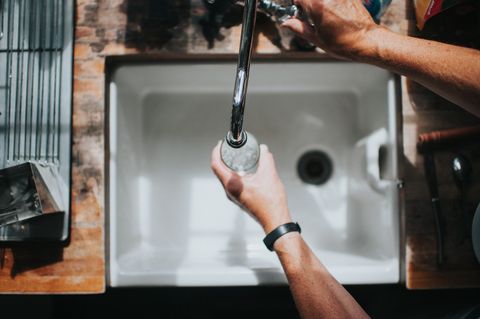
CATHERINE FALLS COMMERCIALGETTY IMAGES
ADVERTISEMENT - CONTINUE READING BELOW
6. Water
That’s right, downing two glasses of plain old H20 before your dinner is enough to burn 15 pounds over 12 weeks. How? According to scientists at Virginia Tech University, water can make you partially full, meaning you’ll eat less grub during your meal.
Plus, downing a cold pint of the clear stuff (water, not vodka) after every meal is enough to raise your metabolism by 30 per cent for 40 minutes, according to the Journal of Clinical Endocrinology and Metabolism. That’s a great way to lose weight fast for little effort on your part. Score.
RELATED STORY

6 Simple Food Swaps You Should Make to Lose Weight
7. Protein
Yes whey: the American Journal of Clinical Nutrition found that high-protein shakes are a vital part of a weight loss plan, so don’t hold back – especially at breakfast. According to research from the University of Bath, eat 700 calories before 11am and you’ll have better blood sugar levels than those who skipped the most important meal of the day. It’s the best excuse you’ll have of sticking with a morning fry-up and avoiding a costly Starbucks lunch.
8. Bacon
And they say you can’t eat like a pig and slim down. Scientists at Kyoto University found bacon is a great source of the hormone coenzyme Q1, which spikes up your metabolism when combined with a brisk walk. And here’s the best bit: the study showed eating six rashers of bacon an hour before your stroll to the office will double the fat burn. There’s no need to ration your rashers.
RELATED STORY

Why It’s Harder to Lose Weight as You Get Older
9. Spinach
It might not build you like Popeye overnight, but add a bit of the green stuff on the side of your plate if you want to lose weight fast. It’s thanks to spinach’s ecdysteroids, natural compounds found in the veg, that increase the levels of protein adiponectin, which makes fat cells more sensitive to insulin, and breaks down fat. It’s really that easy.
10. Complex carbs
Compared to their complex cousins, refined carbs cause your blood sugar to spike rapidly, leading to hunger, cravings and increased food intake a few hours later, according to researchers in Boston. Switch the white bread for whole wheat to ward off the 3pm slump.
How to Lose Weight Fast with Exercise
So you’ve stocked your cupboards with green tea and are prepping for meals by eating an apple. Now what? Time to tailor your workouts for the best results.
8 Ways to Lose Weight Fast with Exercise
- Listen to music while exercising
- Walk or cycle to work
- Workout at home
- Exercise earlier in the day
- Try HIIT workouts
- Stretch more
- Lift heavy weights
- Vary your rest periods
11. Listen to music
Want to instantly burn more blubber in your workout? Research conducted at Brunel University found listening to your favourite tracks will increase your endurance by a massive 15 per cent. And if you really want to turn your weight loss up to 11, Social Psychological and Personality Science found that heavy bass increases your sense of personal power to help you get the most out of the gym.
ADVERTISEMENT - CONTINUE READING BELOW
12. Walk or cycle to work
Avoiding the gym at all costs doesn’t mean you can’t shed the pounds. Simply swap your normal boring commute for a short cycle and you’ll keep the calories burning long after you step into the office, according to researchers at Loughborough University.
Don’t want to fork out for a new set of wheels? Just avoid the car and you’ll still speed away to your blubber. Why? Research published in the Journal of Epidemiology & Community Health found that you can still lose weight fast by opting for public transport over your morning drive.
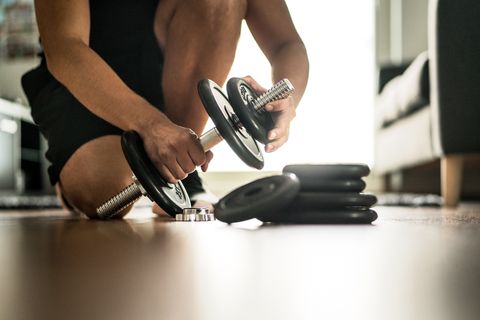
13. Workout at home
Gym memberships are expensive. Home workouts are free. You do the math(s). Need more persuading? Bodyweight workouts are the perfect way to burn the calories as you’re always setting the correct weight: yourself.
RELATED STORY

How Often You Should Exercise Each Week
14. Exercise earlier in the day
Can’t be bothered training five days a week? Exercise early in the morningand you can cut out one of your sessions, says a study published British Journal of Nutrition. The reason? A bodyweight circuit before breakfast blasts away 20 per cent more fat than a session at lunch. That leaves you the rest of the day to gloat about your results.
15. Try HIIT instead of cardio
Want to blow away your belly without logging months of mind-numbing hours on the treadmill? High Intensity Interval Training (HIIT) will kickstart your metabolism like no other workout, burning more than twice the calories as a lighter and longer session, according to a study from Southern Illinois University. And the total amount of time you need to dedicate to HIIT: 20 minutes. It really is the least time exercising for the biggest results.
RELATED STORY

5 Ultimate HIIT Workouts
16. Stretch
Tempting as that post-workout shower may be, making time to hold a static stretch at the end of your workout can increase your muscle mass by as much as 13 per cent, according to US research. How? It has much the same effect on your muscles as resistance training, a study published in the Journal of Applied Physiology found. Both cause micro tears that prompt the manufacture of muscle fibres. Stretch yourself swole.
17. Lift heavy
Testing your limits brings about than just bragging rights. Lifting a heavier weight for fewer reps burns nearly twice as many calories during the two hours after your workout than lifting a lighter weight for more reps, according to research published in the journal Medicine & Science in Sports & Exercise. Feel smug in the knowledge you’re still torching calories in that 10am meeting.
ADVERTISEMENT - CONTINUE READING BELOW
18. Rest wisely
If muscling up is key to shedding timber, you might as well do so efficiently. Rehash your recovery period by introducing short rest intervals within your sets. Switching your 120-second rest between sets to a 60-second intra-set break brings greater strength gains and increased power output, according to a study published in the Journal of Strength and Conditioning Research.
Habits That Will Help You Lose Weight Fast
Exercise and diet are taken care of, but there are still a few weightloss hacks we need to let you in on.
5 Weightloss Hacks You Need to Know
- Having a lie in will double your chances of losing weight
- Fidgeting will help you burn calories
- Play video games to occupy your mind
- Sleep in a blacked-out room to speed up your metabolism
- Stand up for an hour a day to fight off obesity
19. Sleep
Supposed to make that early gym class, but suffered a sleepless night? Give yourself a lie in. As research published in the International Journal of Obesity shows, getting eight hours shuteye will reduce your stress levels and double your chances of slimming down. It really is your dream weight loss method.
RELATED STORY

5 Habits That Add 12 Years to Your Life
20. Fidget
Colleagues annoyed by your constant posture changing and leg waggling? Just tell them you’re burning the calories. A study from the University of Leeds showed that those who fidgeted more often weighed less than those who didn't. Bottom line: reposition your chair all you want.
21. Occupy your mind
Want to instantly crush your cravings by 24 per cent? Load up FIFA instead of Netflix, says research published by the Plymouth University. Spending time bossing virtual 40-yard free kicks is enough to distract your mind food, meaning you’ll eat less. Game on.
22. Turn the lights off
Get slim at the flick of a switch. No, really. Research in the Journal of Biological Rhythms found sleeping in a blacked-out room can speed up your metabolism while also ensuring you catch better Zs. You don’t even need to be awake to drop the pounds.
23. Escape your work chair
Hate being chained to your chair eight hours a day? Bug HR to get a stand-up desk – not only will you be able to casually see what your colleagues are up to, standing for a total of just an hour a day could help to fight off obesity, according to the American Journal of Preventive Medicine. Break up your day and lose weight fast: it’s a win-win.
Like this article? Sign up to our newsletter to get more articles like this delivered straight to your inbox.
Weight loss
From Wikipedia, the free encyclopedia
Jump to navigationJump to search
For other uses, see Weight loss (disambiguation).
Weight loss, in the context of medicine, health, or physical fitness, refers to a reduction of the total body mass, due to a mean loss of fluid, body fat or adipose tissue or lean mass, namely bone mineral deposits, muscle, tendon, and other connective tissue. Weight loss can either occur unintentionally due to malnourishment or an underlying disease or arise from a conscious effort to improve an actual or perceived overweight or obese state. "Unexplained" weight loss that is not caused by reduction in calorific intake or exercise is called cachexia and may be a symptom of a serious medical condition. Intentional weight loss is commonly referred to as slimming.
Contents
Intentional
Intentional weight loss is the loss of total body mass as a result of efforts to improve fitness and health, or to change appearance through slimming. Weight loss in individuals who are overweight or obese can reduce health risks,[1]increase fitness,[2] and may delay the onset of diabetes.[1] It could reduce pain and increase movement in people with osteoarthritis of the knee.[2] Weight loss can lead to a reduction in hypertension (high blood pressure), however whether this reduces hypertension-related harm is unclear.[1][not in citation given]
Weight loss is achieved by adopting a lifestyle in which fewer calories are consumed than are expended.[3] According to the UK National Health Service this is best achieved by monitoring calories eaten and supplementing this with physical exercise.[3]
Depression, stress or boredom may also contribute to weight increase,[4] and in these cases, individuals are advised to seek medical help. A 2010 study found that dieters who got a full night's sleep lost more than twice as much fat as sleep-deprived dieters.[5][6]
Though hypothesized that supplementation of vitamin D may help, studies do not support this.[7] The majority of dieters regain weight over the long term.[8]
According to the Dietary Guidelines for Americans those who achieve and manage a healthy weight do so most successfully by being careful to consume just enough calories to meet their needs, and being physically active.[9]
Techniques
See also: Management of obesity
The least intrusive weight loss methods, and those most often recommended, are adjustments to eating patterns and increased physical activity, generally in the form of exercise. The World Health Organization recommended that people combine a reduction of processed foods high in saturated fats, sugar and salt[10] and caloric content of the diet with an increase in physical activity.[11]
An increase in fiber intake is also recommended for regulating bowel movements. Other methods of weight loss include use of drugs and supplements that decrease appetite, block fat absorption, or reduce stomach volume. Bariatric surgery may be indicated in cases of severe obesity. Two common bariatric surgical procedures are gastric bypass and gastric banding.[12] Both can be effective at limiting the intake of food energy by reducing the size of the stomach, but as with any surgical procedure both come with their own risks[13] that should be considered in consultation with a physician. Dietary supplements, though widely used, are not considered a healthy option for weight loss.[14] Many are available, but very few are effective in the long term.[15]
Virtual gastric band uses hypnosis to make the brain think the stomach is smaller than it really is and hence lower the amount of food ingested. This brings as a consequence weight reduction. This method is complemented with psychological treatment for anxiety management and with hypnopedia. Research has been conducted into the use of hypnosis as a weight management alternative.[16][17][18][19] In 1996 a study found that cognitive-behavioral therapy (CBT) was more effective for weight reduction if reinforced with hypnosis.[17] Acceptance and Commitment Therapy ACT, a mindfulness approach to weight loss, has also in the last few years been demonstrating its usefulness.[20]
Permanent weight loss
In order for weight loss to be permanent, changes in diet and lifestyle must be permanent as well. Short-term dieting has not been shown to produce either long term weight loss or better health, and may even be counterproductive.[21]
Weight loss industry
![]()
The examples and perspective in this section deal primarily with the United States and do not represent a worldwide view of the subject. You may improve this article, discuss the issue on the talk page, or create a new article, as appropriate. (December 2010) (Learn how and when to remove this template message)
There is a substantial market for products which claim to make weight loss easier, quicker, cheaper, more reliable, or less painful. These include books, DVDs, CDs, cremes, lotions, pills, rings and earrings, body wraps, body belts and other materials, fitness centers, clinics, personal coaches, weight loss groups, and food products and supplements.[22]
In 2008 between US$33 billion and $55 billion was spent annually in the US on weight-loss products and services, including medical procedures and pharmaceuticals, with weight-loss centers taking between 6 and 12 percent of total annual expenditure. Over $1.6 billion a year was spent on weight-loss supplements. About 70 percent of Americans' dieting attempts are of a self-help nature.[23][24]
In Western Europe, sales of weight-loss products, excluding prescription medications, topped €1,25 billion (£900 million/$1.4 billion) in 2009.[24]
Unintentional
Characteristics
Unintentional weight loss may result from loss of body fats, loss of body fluids, muscle atrophy, or even a combination of these.[25][26] It is generally regarded as a medical problem when at least 10% of a person's body weight has been lost in six months[25][27] or 5% in the last month.[28] Another criterion used for assessing weight that is too low is the body mass index (BMI).[29] However, even lesser amounts of weight loss can be a cause for serious concern in a frail elderly person.[30]
Unintentional weight loss can occur because of an inadequately nutritious diet relative to a person's energy needs (generally called malnutrition). Disease processes, changes in metabolism, hormonal changes, medications or other treatments, disease- or treatment-related dietary changes, or reduced appetite associated with a disease or treatment can also cause unintentional weight loss.[25][26][27][31][32][33] Poor nutrient utilization can lead to weight loss, and can be caused by fistulae in the gastrointestinal tract, diarrhea, drug-nutrient interaction, enzyme depletion and muscle atrophy.[27]
Continuing weight loss may deteriorate into wasting, a vaguely defined condition called cachexia.[30] Cachexia differs from starvation in part because it involves a systemic inflammatory response.[30] It is associated with poorer outcomes.[25][30][31] In the advanced stages of progressive disease, metabolism can change so that they lose weight even when they are getting what is normally regarded as adequate nutrition and the body cannot compensate. This leads to a condition called anorexia cachexia syndrome (ACS) and additional nutrition or supplementation is unlikely to help.[27] Symptoms of weight loss from ACS include severe weight loss from muscle rather than body fat, loss of appetite and feeling full after eating small amounts, nausea, anemia, weakness and fatigue.[27]
Serious weight loss may reduce quality of life, impair treatment effectiveness or recovery, worsen disease processes and be a risk factor for high mortality rates.[25][30]Malnutrition can affect every function of the human body, from the cells to the most complex body functions, including:[29]
- immune response;
- wound healing;
- muscle strength (including respiratory muscles);
- renal capacity and depletion leading to water and electrolyte disturbances;
- thermoregulation; and
- menstruation.
In addition, malnutrition can lead to vitamin and other deficiencies and to inactivity, which in turn may pre-dispose to other problems, such as pressure sores.[29]
Unintentional weight loss can be the characteristic leading to diagnosis of diseases such as cancer[25] and type 1 diabetes.[34]
In the UK, up to 5% of the general population is underweight, but more than 10% of those with lung or gastrointestinal diseases and who have recently had surgery.[29]According to data in the UK using the Malnutrition Universal Screening Tool ('MUST'), which incorporates unintentional weight loss, more than 10% of the population over the age of 65 is at risk of malnutrition.[29] A high proportion (10–60%) of hospital patients are also at risk, along with a similar proportion in care homes.[29]
Causes
Disease-related
Disease-related malnutrition can be considered in four categories:[29]
ProblemCauseImpaired intakePoor appetite can be a direct symptom of an illness, or an illness could make eating painful or induce nausea. Illness can also cause food aversion.
Inability to eat can result from: diminished consciousness or confusion, or physical problems affecting the arm or hands, swallowing or chewing. Eating restrictions may also be imposed as part of treatment or investigations. Lack of food can result from: poverty, difficulty in shopping or cooking, and poor quality meals.
Impaired digestion &/or absorptionThis can result from conditions that affect the digestive system.Altered requirementsChanges to metabolic demands can be caused by illness, surgery and organ dysfunction.Excess nutrient lossesLosses from the gastrointestinal can occur because of symptoms such as vomiting or diarrhea, as well as fistulae and stomas. There can also be losses from drains, including nasogastric tubes.
Other losses: Conditions such as burns can be associated with losses such as skin exudates.
Weight loss issues related to specific diseases include:
- As chronic obstructive pulmonary disease (COPD) advances, about 35% of patients experience severe weight loss called pulmonary cachexia, including diminished muscle mass.[31] Around 25% experience moderate to severe weight loss, and most others have some weight loss.[31] Greater weight loss is associated with poorer prognosis.[31] Theories about contributing factors include appetite loss related to reduced activity, additional energy required for breathing, and the difficulty of eating with dyspnea (labored breathing).[31]
- Cancer, a very common and sometimes fatal cause of unexplained (idiopathic) weight loss. About one-third of unintentional weight loss cases are secondary to malignancy. Cancers to suspect in patients with unexplained weight loss include gastrointestinal, prostate, hepatobiliary (hepatocellular carcinoma, pancreatic cancer), ovarian, hematologic or lung malignancies.
- People with HIV often experience weight loss, and it is associated with poorer outcomes.[35] Wasting syndrome is an AIDS-defining condition.[35]
- Gastrointestinal disorders are another common cause of unexplained weight loss – in fact they are the most common non-cancerous cause of idiopathic weight loss.[citation needed] Possible gastrointestinal etiologies of unexplained weight loss include: celiac disease, peptic ulcer disease, inflammatory bowel disease (crohn's disease and ulcerative colitis), pancreatitis, gastritis, diarrhea and many other GI conditions.
- Infection. Some infectious diseases can cause weight loss. Fungal illnesses, endocarditis, many parasitic diseases, AIDS, and some other subacute or occult infections may cause weight loss.
- Renal disease. Patients who have uremia often have poor or absent appetite, vomiting and nausea. This can cause weight loss.
- Cardiac disease. Cardiovascular disease, especially congestive heart failure, may cause unexplained weight loss.
- Connective tissue disease
- Neurologic disease, including dementia[36]
- Oral, taste or dental problems (including infections) can reduce nutrient intake leading to weight loss.[27]
Therapy-related
Medical treatment can directly or indirectly cause weight loss, impairing treatment effectiveness and recovery that can lead to further weight loss in a vicious cycle.[25]
Many patients will be in pain and have a loss of appetite after surgery.[25] Part of the body's response to surgery is to direct energy to wound healing, which increases the body's overall energy requirements.[25] Surgery affects nutritional status indirectly, particularly during the recovery period, as it can interfere with wound healing and other aspects of recovery.[25][29] Surgery directly affects nutritional status if a procedure permanently alters the digestive system.[25] Enteral nutrition (tube feeding) is often needed.[25] However a policy of 'nil by mouth' for all gastrointestinal surgery has not been shown to benefit, with some suggestion it might hinder recovery.[37][needs update]
Early post-operative nutrition is a part of Enhanced Recovery After Surgery protocols.[38] These protocols also include carbohydrate loading in the 24 hours before surgery, but earlier nutritional interventions have not been shown to have a significant impact.[38]
Some medications can cause weight loss,[39] while others can cause weight gain.[40][41]
Social conditions
Social conditions such as poverty, social isolation and inability to get or prepare preferred foods can cause unintentional weight loss, and this may be particularly common in older people.[42] Nutrient intake can also be affected by culture, family and belief systems.[27] Ill-fitting dentures and other dental or oral health problems can also affect adequacy of nutrition.[27]
Loss of hope, status or social contact and spiritual distress can cause depression, which may be associated with reduced nutrition, as can fatigue.[27]
Myths
Some popular beliefs attached to weight loss have been shown to either have less effect on weight loss than commonly believed or are actively unhealthy. According to Harvard Health, the idea of metabolism being the "key to weight" is "part truth and part myth" as while metabolism does affect weight loss, external forces such as diet and exercise have an equal effect.[43] They also commented that the idea of changing one's rate of metabolism is under debate.[43] Diet plans in fitness magazines are also often believed to be effective, but may actually be harmful by limiting the daily intake of important calories and nutrients which can be detrimental depending on the person and are even capable of driving individuals away from weight loss.[44]
Health effects
Further information: Obesity § Effects on health
Obesity increases health risks, including diabetes, cancer, cardiovascular disease, high blood pressure, and non-alcoholic fatty liver disease, to name a few. Reduction of obesity lowers those risks.
A 1-kg loss of body weight has been associated with an approximate 1-mm Hg drop in blood pressure.[45]
See also
- Anorexia
- Anti-obesity medication
- Cigarette smoking for weight loss
- Dieting
- Enterostatin
- Failure to thrive
References
- ^ Jump up to:a b c LeBlanc, E; O'Connor, E; Whitlock, EP (October 2011). "Screening for and management of obesity and overweight in adults". Evidence Syntheses, No. 89. U.S. Agency for Healthcare Research and Quality (AHRQ). Retrieved 27 June 2013.
- ^ Jump up to:a b Institute for Quality and Efficiency in Health Care. "Health benefits of losing weight". Fact sheet, Informed Health Online. Institute for Quality and Efficiency in Health Care. Retrieved 27 June 2013.
- ^ Jump up to:a b "Health Weight – Understanding Calories". National Health Service. 19 August 2016.
- ^ "Moods for Overeating: Good, Bad, and Bored". Psychology Today. Retrieved 17 October 2018.
- ^ Nedeltcheva, AV; Kilkus, JM; Imperial, J; Schoeller, DA; Penev, PD (2010). "Insufficient sleep undermines dietary efforts to reduce adiposity". Annals of Internal Medicine. 153 (7): 435–41. doi:10.7326/0003-4819-153-7-201010050-00006. PMC 2951287. PMID 20921542.
- ^ Harmon, Katherine (4 October 2010). "Sleep might help dieters shed more fat". Scientific American. Retrieved 20 October 2010.
- ^ Pathak, K.; Soares, M. J.; Calton, E. K.; Zhao, Y.; Hallett, J. (1 June 2014). "Vitamin D supplementation and body weight status: a systematic review and meta-analysis of randomized controlled trials". Obesity Reviews. 15 (6): 528–37. doi:10.1111/obr.12162. ISSN 1467-789X. PMID 24528624.
- ^ Sumithran, Priya; Proietto, Joseph (2013). "The defence of body weight: A physiological basis for weight regain after weight loss". Clinical Science. 124 (4): 231–41. doi:10.1042/CS20120223. PMID 23126426.
- ^ "Executive Summary". Dietary Guidelines 2015–2020. Retrieved 2 May 2016.
- ^ "World Health Organization recommends eating less processed food". BBC News. 3 March 2003.
- ^ "Choosing a safe and successful weight loss program". Weight-control Information Network. National Institute of Diabetes and Digestive and Kidney Diseases. April 2008. Retrieved 26 January 2011.
- ^ Albgomi. "Bariatric Surgery Highlights and Facts". Bariatric Surgery Information Guide. bariatricguide.org. Retrieved 13 June 2013.
- ^ "Gastric bypass risks". Mayo Clinic. 9 February 2009.
- ^ Neumark-Sztainer, Dianne; Sherwood, Nancy E.; French, Simone A.; Jeffery, Robert W. (March 1999). "Weight control behaviors among adult men and women: Cause for concern?". Obesity Research. 7 (2): 179–88. doi:10.1002/j.1550-8528.1999.tb00700.x. PMID 10102255.
- ^ Thomas, Paul R. (January – February 2005). "Dietary Supplements For Weight Loss?". Nutrition Today. 40 (1): 6–12.
- ^ Barabasz, Marianne; Spiegel, David (1989). "Hypnotizability and weight loss in obese subjects". International Journal of Eating Disorders. 8 (3): 335–41. doi:10.1002/1098-108X(198905)8:3<335::AID-EAT2260080309>3.0.CO;2-O.
- ^ Jump up to:a b Kirsch, I. (June 1996). "Hypnotic enhancement of cognitive-behavioral weight loss treatments–another meta-reanalysis". Journal of Consulting and Clinical Psychology. 64 (3): 517–19. doi:10.1037/0022-006X.64.3.517. PMID 8698945. INIST:3143031.
- ^ Andersen, M. S. (1985). "Hypnotizability as a factor in the hypnotic treatment of obesity". International Journal of Clinical and Experimental Hypnosis. 33 (2): 150–59. doi:10.1080/00207148508406645. PMID 4018924.
- ^ Allison, David B.; Faith, Myles S. (June 1996). "Hypnosis as an adjunct to cognitive-behavioral psychotherapy for obesity: A meta-analytic reappraisal". Journal of Consulting and Clinical Psychology. 64 (3): 513–16. doi:10.1037/0022-006X.64.3.513. PMID 8698944.
- ^ Ruiz, F. J. (2010). "A review of Acceptance and Commitment Therapy (ACT) empirical evidence: Correlational, experimental psychopathology, component and outcome studies". International Journal of Psychology and Psychological Therapy. 10 (1): 125–62.
- ^ Mann, T; Tomiyama, AJ; Westling, E; Lew, AM; Samuels, B; Chatman, J (April 2007). "Medicare's search for effective obesity treatments: diets are not the answer". The American Psychologist. 62 (3): 220–33. CiteSeerX 10.1.1.666.7484. doi:10.1037/0003-066x.62.3.220. PMID 17469900. In sum, there is little support for the notion that diets ["severely restricting one’s calorie intake"] lead to lasting weight loss or health benefits.
- ^ "The facts about weight loss products and programs". DHHS Publication No (FDA) 92-1189. US Food and Drug Administration. 1992. Archived from the originalon 26 September 2006. Retrieved 14 May 2013.
- ^ "Profiting From America's Portly Population". PRNewswire (Press release). Reuters. 21 April 2008. Retrieved 17 January 2009.
- ^ Jump up to:a b "No evidence that popular slimming supplements facilitate weight loss, new research finds". 14 July 2010. Retrieved 19 July 2010.
- ^ Jump up to:a b c d e f g h i j k l National Cancer Institute (November 2011). "Nutrition in cancer care (PDQ)". Physician Data Query. National Cancer Institute. Retrieved 3 July 2013.
- ^ Jump up to:a b Huffman, GB (15 February 2002). "Evaluating and treating unintentional weight loss in the elderly". American Family Physician. 65 (4): 640–50. PMID 11871682.
- ^ Jump up to:a b c d e f g h i Payne, C; Wiffen, PJ; Martin, S (18 January 2012). Payne, Cathy (ed.). "Interventions for fatigue and weight loss in adults with advanced progressive illness". The Cochrane Database of Systematic Reviews. 1: CD008427. doi:10.1002/14651858.CD008427.pub2. PMID 22258985. (Retracted, seedoi:10.1002/14651858.cd008427.pub3. If this is an intentional citation to a retracted paper, please replace {{Retracted}} with {{Retracted|intentional=yes}}.)
- ^ Institute of Medicine (U.S.). Committee on Nutrition Services for Medicare Beneficiaries (9 June 2000). The role of nutrition in maintaining health in the nation's elderly: evaluating coverage of nutrition services for the Medicare population. p. 67. ISBN 978-0-309-06846-8.
- ^ Jump up to:a b c d e f g h National Collaborating Centre for Acute Care (UK) (February 2006). "Nutrition Support for Adults: Oral Nutrition Support, Enteral Tube Feeding and Parenteral Nutrition". NICE Clinical Guidelines, No. 32. National Collaborating Centre for Acute Care (UK).
- ^ Jump up to:a b c d e Yaxley, A; Miller, MD; Fraser, RJ; Cobiac, L (February 2012). "Pharmacological interventions for geriatric cachexia: a narrative review of the literature". The Journal of Nutrition, Health & Aging. 16 (2): 148–54. doi:10.1007/s12603-011-0083-8. PMID 22323350.
- ^ Jump up to:a b c d e f Itoh, M; Tsuji, T; Nemoto, K; Nakamura, H; Aoshiba, K (18 April 2013). "Undernutrition in patients with COPD and its treatment". Nutrients. 5 (4): 1316–35. doi:10.3390/nu5041316. PMC 3705350. PMID 23598440.
- ^ Mangili A, Murman DH, Zampini AM, Wanke CA; Murman; Zampini; Wanke (2006). "Nutrition and HIV infection: review of weight loss and wasting in the era of highly active antiretroviral therapy from the nutrition for healthy living cohort". Clin. Infect. Dis. 42 (6): 836–42. doi:10.1086/500398. PMID 16477562.
- ^ Nygaard, B (19 July 2010). "Hyperthyroidism (primary)". Clinical Evidence. 2010: 0611. PMC 3275323. PMID 21418670.
- ^ National Collaborating Centre for Chronic Conditions (UK) (2004). Type 1 diabetes in adults: National clinical guideline for diagnosis and management in primary and secondary care. NICE Clinical Guidelines, No. 15.1. Royal College of Physicians UK. ISBN 978-1860162282. Retrieved 3 July 2013.
- ^ Jump up to:a b Mangili, A; Murman, DH; Zampini, AM; Wanke, CA (15 March 2006). "Nutrition and HIV infection: review of weight loss and wasting in the era of highly active antiretroviral therapy from the nutrition for healthy living cohort". Clinical Infectious Diseases. 42 (6): 836–42. doi:10.1086/500398. PMID 16477562.
- ^ Massompoor SM (April 2004). "Unintentional weight loss". Shiraz E-Medical Journal. 5 (2).
- ^ Andersen, HK; Lewis, SJ; Thomas, S (18 October 2006). Andersen, Henning Keinke (ed.). "Early enteral nutrition within 24h of colorectal surgery versus later commencement of feeding for postoperative complications". The Cochrane Database of Systematic Reviews (4): CD004080. doi:10.1002/14651858.CD004080.pub2. PMID 17054196. Lay summary.
- ^ Jump up to:a b Burden, S; Todd, C; Hill, J; Lal, S (2012). Burden, Sorrel (ed.). "Pre‐operative Nutrition Support in Patients Undergoing Gastrointestinal Surgery" (PDF). The Cochrane Database of Systematic Reviews. 11 (11): CD008879. doi:10.1002/14651858.CD008879.pub2. PMID 23152265. Lay summary.
- ^ Mariotti, KC; Rossato, LG; Fröehlich, PE; Limberger, RP (November 2013). "Amphetamine-type medicines: a review of pharmacokinetics, pharmacodynamics, and toxicological aspects". Current Clinical Pharmacology. 8 (4): 350–57. doi:10.2174/15748847113089990052. PMID 23342978.
- ^ Sarnes, E; Crofford, L; Watson, M; Dennis, G; Kan, H; Bass, D (October 2011). "Incidence and US costs of corticosteroid-associated adverse events: a systematic literature review". Clinical Therapeutics. 33 (10): 1413–32. doi:10.1016/j.clinthera.2011.09.009. PMID 21999885.
- ^ Serretti, A; Mandelli, L (October 2010). "Antidepressants and body weight: a comprehensive review and meta-analysis". The Journal of Clinical Psychiatry. 71 (10): 1259–72. doi:10.4088/JCP.09r05346blu. PMID 21062615.
- ^ Alibhai, SM; Greenwood, C; Payette, H (15 March 2005). "An approach to the management of unintentional weight loss in elderly people". Canadian Medical Association Journal. 172 (6): 773–80. doi:10.1503/cmaj.1031527. PMC 552892. PMID 15767612.
- ^ Jump up to:a b "Does Metabolism Matter in Weight Loss?". Harvard Health. Retrieved 18 June 2018.
- ^ Long, Jacqueline (2015). The Gale Encyclopedia of Senior Health. Detroit, MI: Gale. ISBN 978-1573027526.
- ^ Harsha, D. W.; Bray, G. A. (2008). "Weight Loss and Blood Pressure Control (Pro)". Hypertension. 51 (6): 1420–25. doi:10.1161/HYPERTENSIONAHA.107.094011. ISSN 0194-911X. PMID 18474829.
DIET & FITNESS
3 things that helped this mom and daughter lose and keep off 105 pounds combined
After Brittany Bossard saw how successful her mom, Geri, was at losing weight, she started changing her habits, too.
May 9, 2019, 9:50 PM GMT+5:30 / Source: TODAY
By Meghan Holohan
Geri Bossard loves cooking huge meals for family. Her son and husband have such big appetites that they often eat two dinners.
After years of eating extra meals with them, she noticed her weight had become a problem. She struggled to catch her breath as she walked up the stairs and always felt exhausted. The 5-foot-6-inch Geri weighed 210 pounds and knew she needed to make some changes.
“I was just eating like these huge, huge portions,” Geri, 59, of Lemont, Illinois, told TODAY.

At 210 pounds Geri Bossard struggled to breathe when she walked up the stairs. After realizing her weight was impacting her health, she joined Jenny Craig to lose weight. Courtesy the Bossard family
While she had tried losing weight in the past, it never worked.
"I have tried other diets ... once you stop, the weight would come back on," she explained.
In 2017 she called Jenny Craig, a weight-loss program that provides pre-made, portioned meals along with the support of a personal consultant. As soon as Geri started, she began to shed pounds.
"There was not one week where I didn't lose weight," she said.
A few months later, her daughter Brittany Bossard wondered if she, too, needed to make a change. As a young professional, she was grappling with excess weight.
"The weight came on in college: I learned the freshman 15 was a real thing," Brittany, 28, of Northbrook, Illinois, told TODAY. "Once I graduated college and entered the real world, that is when things got bad for me."
Brittany worked long hours in the wealth management field and was too exhausted to cook when she returned home. In total, she gained about 30 pounds since high school. While the 5-foot-7-inch Brittany knew she was carrying extra weight, she did not realize just how much. Then she spotted a picture of herself as maid of honor at her best friend's wedding and felt shocked.
"The pictures don't lie," Brittany said. "That was a wake-up call."
 After seeing a picture of herself overweight, Brittany Bossard followed her mom's lead and tried Jenny Craig to lose weight. Courtesy the Bossard family
After seeing a picture of herself overweight, Brittany Bossard followed her mom's lead and tried Jenny Craig to lose weight. Courtesy the Bossard family
When she saw her mom was successfully losing weight, she decided to follow her lead.
"I didn't feel myself going to bed overly full, which helped me sleep better. I had way more energy, which was great. My face kind of cleared up," she said. "I was happy to see that."
Like her mom, Brittany realized that she struggled with portion sizes.
Recommended
NEWSBritish radio host fired over offensive royal baby tweet
HOMETroy Dean Shafer of 'Nashville Flipped' has died at age 38
"Before, I was happy to eat whatever was on my plate no matter if I was hungry," she said. "If I go out to dinner with my friends I don’t find myself wanting to eat the whole plate."
Brittany and her mom also slowly added exercise into their routines.
"I just started out walking 15 minutes a day because I was so out of shape," Geri said.
Brittany started walking with her mom (who now walks six miles a day). As she lost more weight, she started more high-intensity workouts, such as spin.
"It is nice to see that I keep up with the class. I was so behind (at first)," Brittany said.
 Having each other as support makes it easier for Geri and Brittany Bossard to maintain healthy eating and exercise habits. Courtesy the Bossard family
Having each other as support makes it easier for Geri and Brittany Bossard to maintain healthy eating and exercise habits. Courtesy the Bossard family
In nine months Geri went from 210 pounds to 130 pounds and in six months Brittany went from 155 pounds to 130 pounds for a combined weight loss of 105 pounds. They both follow the meal plan to maintain their weight and feel grateful they had each other.
"I never imagined we would do it together. My mom and I are close anyway but it definitely helped us connect on a totally different level," Brittany said.
The two share tips to help others interested in losing weight.
1. BE SMART WHEN GOING OUT TO EAT
While Geri and Brittany go out to eat, they still want to enjoy it. That's why they make some decisions before they even pick up their forks.
"I have them wrap half my meal at first. I am satisfied with that," Geri said. "Before, I would finish the entire meal."
10 Ways to Lose Weight Without Dieting
Simple changes to your lifestyle can help you lose weight and keep it off.
By Kathleen M. Zelman, MPH, RD, LD
FROM THE WEBMD ARCHIVES
Sure, you can lose weight quickly. There are plenty of fad diets that work to shed pounds rapidly -- while leaving you feeling hungry and deprived. But what good is losing weight only to regain it? To keep pounds off permanently, it's best to lose weight slowly. And many experts say you can do that without going on a "diet." Instead, the key is making simple tweaks to your lifestyle.
CONTINUE READING BELOW
YOU MIGHT LIKE
WEBMD
Routine Checkups You Shouldn't Miss
When's the last time you had your cholesterol, blood pressure, or weight checked? Learn which medical tests and screenings you should have and how often you should have them.
WEBMD
MS: Are You Working With the Best Team for Your Needs?
Take this assessment to find out if there are other health care providers who can help with your symptoms.
WEBMD
Could You Be Living Better With MS? Assess Yourself
Take this WebMD assessment and get personalized tips to help live your life with MS to the fullest.
One pound of fat -- is equal to 3,500 calories. By shaving 500 calories a day through dietary and exercise modifications, you can lose about a pound a week. If you only need to maintain your current weight, shaving 100 calories a day is enough to avoid the extra 1-2 pounds most adults gain each year.
Adopt one or more of these simple, painless strategies to help lose weight without going on a "diet":
- Eat Breakfast Every Day. One habit that's common to many people who have lost weight and kept it off is eating breakfast every day. "Many people think skipping breakfast is a great way to cut calories, but they usually end up eating more throughout the day, says Elizabeth Ward, MS, RD, author of The Pocket Idiot's Guide to the New Food Pyramids. "Studies show people who eat breakfast have lower BMIs than breakfast-skippers and perform better, whether at school or in the boardroom." Try a bowl of whole-grain cereal topped with fruit and low-fat dairy for a quick and nutritious start to your day.
- Close the Kitchen at Night. Establish a time when you will stop eating so you won't give in to the late-night munchies or mindless snacking while watching television. "Have a cup of tea, suck on a piece of hard candy or enjoy a small bowl of light ice cream or frozen yogurt if you want something sweet after dinner, but then brush your teeth so you will be less likely to eat or drink anything else," suggests Elaine Magee, MPH, RD, WebMD's "Recipe Doctor" and the author of Comfort Food Makeovers.
- Choose Liquid Calories Wisely. Sweetened drinks pile on the calories, but don't reduce hunger like solid foods do. Satisfy your thirst with water, sparkling water with citrus, skim or low-fat milk, or small portions of 100% fruit juice. Try a glass of nutritious and low-calorie vegetable juice to hold you over if you get hungry between meals. Be careful of alcohol calories, which add up quickly. If you tend to drink a glass or two of wine or a cocktail on most days, limiting alcohol to the weekends can be a huge calorie saver.
- Eat More Produce. Eating lots of low-calorie, high-volume fruits and vegetables crowds out other foods that are higher in fat and calories. Move the meat off the center of your plate and pile on the vegetables. Or try starting lunch or dinner with a vegetable salad or bowl of broth-based soup, suggests Barbara Rolls, PhD, author of The Volumetrics Eating Plan. The U.S. government's 2005 Dietary Guidelines suggest that adults get 7-13 cups of produce daily. Ward says that's not really so difficult: "Stock your kitchen with plenty of fruits and vegetables and at every meal and snack, include a few servings," she says. "Your diet will be enriched with vitamins, minerals, phytonutrients, fiber, and if you fill up on super-nutritious produce, you won't be reaching for the cookie jar."
- Go for the Grain. By substituting whole grains for refined grains like white bread, cakes, cookies, and pretzels, you add much-needed fiber and will fill up faster so you're more likely to eat a reasonable portion. Choose whole-wheat breads and pastas, brown rice, bran flakes, popcorn, and whole-rye crackers.
- Control Your Environments. Another simple strategy to help cut calories is to control your environment -- everything from stocking your kitchen with lots of healthy options to choosing the right restaurants. That means avoiding the temptation by staying away from all-you-can-eat restaurants. And when it comes to parties, "eat a healthy snack before so you won't be starving, and be selective when you fill your plate at the buffet," suggests Ward. Before going back for more food, wait at least 15 minutes and have a big glass of water.
- Trim Portions. If you did nothing else but reduce your portions by 10%-20%, you would lose weight. Most of the portions served both in restaurants and at home are bigger than you need. Pull out the measuring cups to get a handle on your usual portion sizes, and work on paring them down. Get instant portion control by using small bowls, plates, and cups, says Brian Wansink, PhD, author of Mindless Eating. You won't feel deprived because the food will look plentiful on dainty dishware.
- Add More Steps. Get yourself a pedometer and gradually add more steps until you reach 10,000 per day. Throughout the day, do whatever you can to be more active -- pace while you talk on the phone, take the dog out for an extra walk, and march in place during television commercials. Having a pedometer serves as a constant motivator and reminder.
- Have Protein at Every Meal and Snack. Adding a source of lean or low-fat protein to each meal and snack will help keep you feeling full longer so you're less likely to overeat. Try low-fat yogurt, small portion of nuts, peanut butter, eggs, beans, or lean meats. Experts also recommend eating small, frequent meals and snacks (every 3-4 hours), to keep your blood sugar levels steady and to avoid overindulging.
- Switch to Lighter Alternatives. Whenever you can, use the low-fat versions of salad dressings, mayonnaise, dairy products, and other products. "You can trim calories effortlessly if you use low-fat and lighter products, and if the product is mixed in with other ingredients, no one will ever notice," says Magee. More smart substitutions: Use salsa or hummus as a dip; spread sandwiches with mustard instead of mayo; eat plain roasted sweet potatoes instead of loaded white potatoes; use skim milk instead of cream in your coffee; hold the cheese on sandwiches; and use a little vinaigrette on your salad instead of piling on the creamy dressing.
How to lose weight
By Dr. Andreas Eenfeldt, MD![]() – Updated April 10, 2019
– Updated April 10, 2019
- Diet
- When to eat
- Real food
- When not to eat
- Measure
- Persistence
- Fruit
- Beer
- Artificial sweeteners
- Medications
- Stress & sleep
- Dairy & nuts
- Supplements
- Intermittent fasting
- Exercise
- Ketosis
- Hormones
- Weight-loss pills
- Start free trial
Do you have trouble losing weight? Or would you like to lose faster? You’ve come to the right place. Get ready for weight loss without hunger.
The sad truth is that conventional ideas – eat less, run more – do not work long term. Counting calories, exercising for hours every day and trying to ignore your hunger? That’s needless suffering and it wastes your time and precious willpower. It’s weight loss for masochists. Eventually almost everyone gives up. That’s why we have an obesity epidemic. Fortunately there’s a better way.
The bottom line? Your weight is hormonally regulated. If you reduce the levels of your fat-storing hormone, insulin, you’ll have a way easier time losing excess weight.
Top 18 weight-loss tips
Are you ready? Here we go. Start at the top of the list (most important) and go down as far as you need. Click on any tip to read all about it. Perhaps you only need the first piece of advice?
- Choose a low-carb diet
- Eat when hungry
- Eat real food
- Eat only when hungry
- Measure your progress wisely
- Be persistent
- Avoid fruit
- Avoid beer
- Avoid artificial sweeteners
- Review any medications
- Stress less, sleep more
- Eat less of dairy products and nuts
- Supplement vitamins and minerals
- Use intermittent fasting
- Exercise wisely
- Achieve optimal ketosis
- Get your hormones checked
- Consider weight-loss pills (if desperate)
Prefer watching a video?
Eighteen tips too many for you? Check out our popular video course with the five most important ones. Sign up for free updates and you’ll get instant access to it:
Sign up!
1. Choose a low-carb diet
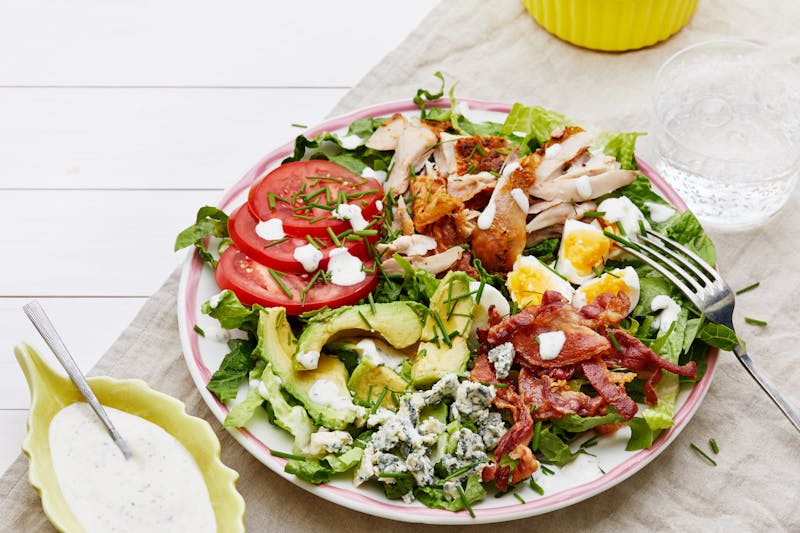
If you want to lose weight you should start by avoiding sugar and starch (like bread, pasta and potatoes). This is an old idea: For 150 years or more there have been a huge number of weight-loss diets based on eating fewer carbs. What’s new is that dozens of modern scientific studies have proven that, yes, low carb is the most effective way to lose weight.
Obviously, it’s still possible to lose weight on any diet – just eat fewer calories than you burn, right? The problem with this simplistic advice is that it ignores the elephant in the room: Hunger. Most people don’t like to “just eat less”, i.e. being hungry forever. That’s dieting for masochists. Sooner or later, a normal person will give up and eat, hence the prevalence of “yo-yo dieting”.
The main advantage of the low-carb diet is that it causes you to want to eat less. Even without counting calories most overweight people eat far fewer calories on low carb. Sugar and starch may increase your hunger, while avoiding them may decrease your appetite to an adequate level. If your body wants to have an appropriate number of calories you don’t need to bother counting them. Thus: Calories count, but you don’t need to count them.
A 2012 study also showed that people on a low-carb diet burned 300 more calories a day – while resting! According to one of the Harvard professors behind the study this advantage “would equal the number of calories typically burned in an hour of moderate-intensity physical activity”. Imagine that: an entire bonus hour of exercise every day, without actually exercising. A later, even larger and more carefully conducted study confirmed the effect, with different groups of people on low-carb diets burning an average of between 200 and almost 500 extra calories per day.
1
Bottom line: A low-carb diet reduces your hunger and makes it easier to eat less. And it might even increase your fat burning at rest. Study after study shows that low carb is the smart way to lose weight and that it improves important health markers.
Learn more about keto and low-carb
Do you want to know more about exactly what to eat on low carb, exactly how to do it, potential problems and solutions… and lots of great recipes? Check out our keto for beginners guide. Alternatively, you can make low carb even simpler by signing up for our free two-week keto challenge.
Meal planner and hundreds of videos
Get the full Diet Doctor experience with unlimited low-carb and keto meal plans, shopping lists and much more with a free membership trial.
Low-carb video course
Do you want to watch a high-quality 11-minute video course on how to eat low-carb, high-fat (keto)? And about the most important things to think about? Sign up for free updates and you’ll get instant access:
Sign up!
2. Eat when hungry
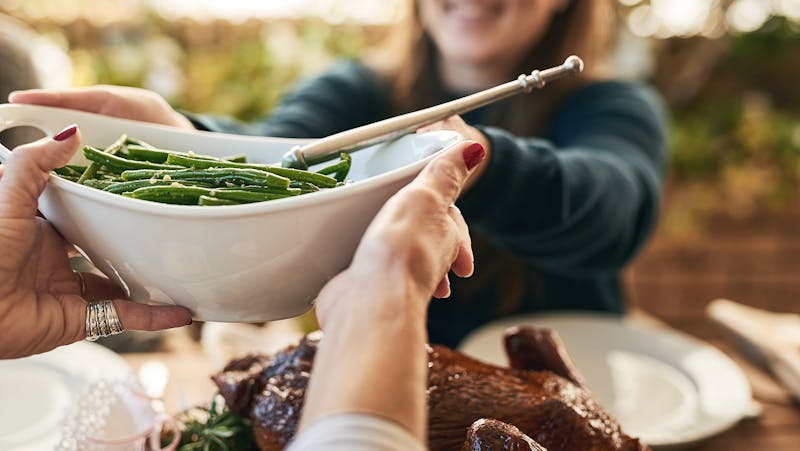
Don’t be hungry. The most common mistake when starting a low carb diet: Reducing carb intake while still being afraid of fat. Carbs and fat are the body’s two main energy sources, and it needs at least one of them.
Low carb AND low fat = starvation
Avoiding both carbs and fat results in hunger, cravings and fatigue. Sooner or later people can’t stand it and give up. The solution is to eat more natural fat until you feel satisfied. For example:
- Butter
- Full-fat cream
- Olive oil
- Meat (including the fat)
- Fatty fish
- Bacon
- Eggs
- Coconut oil, etc.
Always eat enough, so that you feel satisfied, especially in the beginning of the weight-loss process. Doing this on a low-carb diet means that the fat you eat will be burned as fuel by your body, as your levels of the fat storing hormone insulin will be lowered. You’ll become a fat-burning machine. You’ll lose excess weight without hunger.
Do you still fear saturated fat? Don’t. The fear of saturated fat is based on obsolete theories that have been proven incorrect by modern science. Butter is a fine food. However, feel free to eat mostly unsaturated fat (e.g. olive oil, avocado, fatty fish) if you prefer. This could be called a Mediterranean low-carb diet and works great too.
Eating when hungry also implies something else: If you’re not hungry you probably don’t need to eat yet. When on a keto diet you can trust your feelings of hunger and satiety again. Feel free to eat as many times per day that works best for you.
Some people eat three times a day and occasionally snack in between (note that frequent snacking could mean that you’d benefit from adding fat to your meals, to increase satiety). Some people only eat once or twice a day and never snack. Whatever works for you. Just eat when you’re hungry.
Read more about why eating when hungry is smarter than counting calories
Learn more about fuelling your body with fat
3. Eat real food

Another common mistake when eating a low-carb diet is getting fooled by the creative marketing of special “low-carb” products.
Remember: An effective low-carb diet for weight loss should be based on real food,.
Real food is what humans have been eating for thousands or (even better) millions of years, e.g. meat, fish, vegetables, eggs, butter, olive oil, nuts etc.
If you want to lose weight, you’d better avoid special “low-carb” products that are full of carbs. This should be obvious, but creative marketers are doing all they can to fool you (and get your money). They will tell you that you can eat cookies, pasta, ice cream, bread and plenty of chocolate on a low-carb diet, as long as you buy their brand. They’re full of carbohydrates. Don’t be fooled.
How about low-carb bread? Be careful: if it’s baked with grains it’s certainly not low carb. But some companies still try to sell it to you as a low-carb option.
Low-carb chocolate is usually full of sugar alcohols, which the manufacturer does not count as carbs. But roughly half of these carbs may be absorbed, raising blood sugar and insulin. The remaining carbs end up in the colon, potentially causing gas and diarrhea. Furthermore, any sweeteners can maintain sugar cravings.
Here are three examples of what to avoid:
- Atkins’ fairy-tale cookies
- Julian Bakery’s high-carb low-carb bread
- The Dreamfields pasta fraud (that finally resulted in an 8 million dollar fine!)
These three companies are not unique. There are thousands of similar companies trying to trick you into buying their “low carb” junk food, full of starch, sugar alcohols, wheat flour, sweeteners and strange additives. Two simple rules to avoid this junk:
- Don’t eat “low carb” versions of high carb stuff, like cookies, bars, chocolate, bread, pasta or ice cream – unless you are SURE of the ingredients (perhaps from making it yourself).
- Avoid products with the words “net carbs” on them. That’s usually just a way to fool you.
Focus on eating good quality, minimally processed real food. Ideally the food you buy shouldn’t even have a list of ingredients (or it should be very short).
Read more about fake low-carb products
Less moderation, more quality
Finally – forget about the failed “everything in moderation” diet motto of clueless dietitians. It’s terrible advice and Americans who eat a more diverse diet actually gain more weight.
Don’t eat everything in moderation. Eat as much healthy food as you can, whenever you are hungry. Eat as little unhealthy garbage as you can. If possible none at all.
4. Eat only when hungry
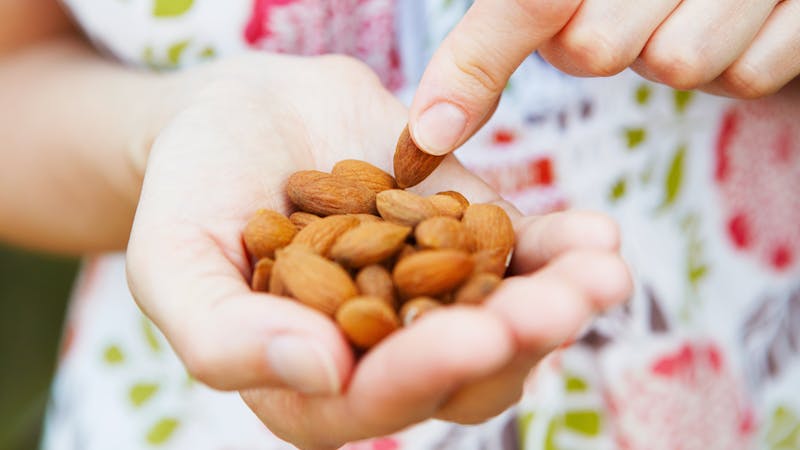
On a low-carb diet you should aim to eat when hungry (see tip #2 above). And if you’re not hungry? Don’t eat. Nothing slows down weight loss more than frequently eating a lot of food that you do not need. This, in fact, is so important that it’s worth this section of it’s own.
Limit unnecessary snacking
Unnecessary snacking can be a problem on a keto diet too. Some things are easy to eat just because they’re tasty and readily available. Here are three common traps to watch out for on a keto or low-carb diet:
- Dairy products such as cream and cheeses. They work well in cooking as they satisfy. The problem is if you’re munching a lot of cheese in front of the TV in the evening… without being hungry. Be careful with that. Or lots of cream with dessert, when you’re actually already full and just keep eating because it tastes good. Or another common culprit: loads of heavy cream in the coffee, many times per day.
- Nuts. It’s very easy to eat until the nuts are gone, regardless of how full you are. A tip: According to science, salted nuts are harder to stop eating than unsalted nuts. Salted nuts tempt you to more overeating. Good to know. Another tip: Avoid bringing the entire bag to the couch, preferably choose a small bowl instead. I often eat all the nuts in front of me, whether I’m hungry or not.
- Low-carb baking. Even if you’re only using almond flour and sweeteners snacking on baked goods and cookies usually provides additional eating when you’re not hungry… and yes, this will slow down weight loss.
Feel free to skip meals
Do you have to eat breakfast? No, of course not.
2
Don’t eat if you’re not hungry. And this goes for any meal.
On a strict keto diet the hunger and urge to eat tend to decrease a lot, especially if you have excess weight to lose. Your body may be happily burning your fat stores, reducing the need to eat.
If this happens, be happy! Don’t fight it by eating food you don’t want. Instead, wait for the hunger to return before you eat again. This will save you both time and money, while speeding up your weight loss.
Some people fear that they will lose control if they don’t eat every three hours, thus making them eat thousands of calories and blowing their diets completely. So they obsessively snack all the time.
This obsessive snacking may be necessary on a diet high in sugar/processed carbs to control hunger cravings, but it’s usually completely unnecessary on a keto diet. Hunger will only slowly return and you’ll have plenty of time to prepare food or grab a snack.
Bottom line: To lose weight quickly and sustainably: Eat when you’re hungry – but only when you’re hungry. Forget the clock and listen to your body instead.
Learn more
Breakfast! Is It Really That Important? – Dr. Jason Fung07:08Dr. Fung's fasting course part 6: Is it really that important to eat breakfast?
The Key to Obesity – Dr. Jason Fung44:22How insulin toxicity causes obesity and type 2 diabetes – and how to reverse it. Dr Jason Fung at the LCHF Convention 2015.
The 7 Benefits of Fasting – Dr. Jason Fung07:33Dr. Fung's fasting course part 4: About the 7 big benefits of fasting intermittently.
5. Measure your progress wisely
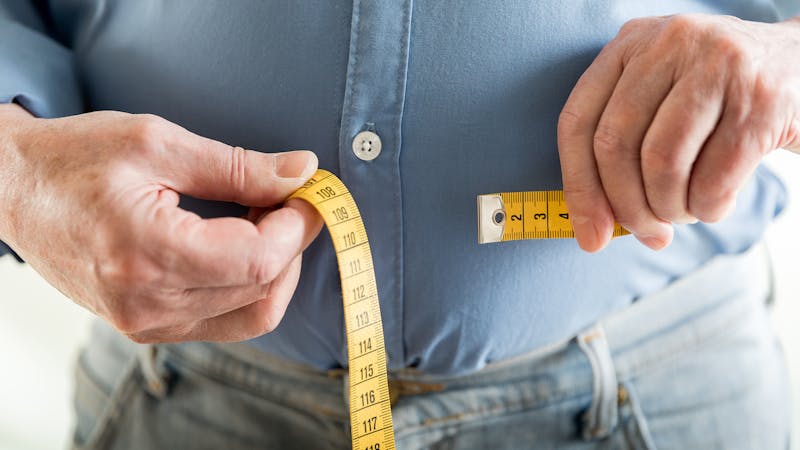
Tracking successful weight loss is sometimes trickier than you’d think. Focusing only on weight and stepping on the scale every day might be misleading, cause unnecessary anxiety and undermine your motivation for no good reason.
The scale is not necessarily your friend. You may want to lose fat – but the scale measures muscles, bone and internal organs as well. Gaining muscle is a good thing. Thus weight or BMI are imperfect ways to measure your progress. This is especially true if you’re just coming off a long period of semi-starvation (calorie counting), as your body may want to restore lost muscles etc. Starting weight training and gaining muscle can also hide your fat loss.
Losing fat and gaining muscles means great progress, but you may miss this if you only measure your weight. Thus it’s smart to also track the disappearance of your belly fat, by measuring your waist circumference.
Here’s how to do it:
- Put the measuring tape around your middle, slightly above your belly button (to be exact: at the midpoint between your lowest rib and the top of your hipbone, at your side)
- Exhale and relax (don’t suck in your stomach)
- Make sure the measuring tape fits snuggly, without compressing your skin
- Measure
Compare your result to these recommendations:
Excellent Decent Too highWomenbelow 31.5 inches 31.5-35 inches over 35 inches (80 cm)(80-88 cm)(88 cm) Menbelow 37 inches 37-40 inches over 40 inches (94 cm)(94-102 cm)(102 cm)
I recommend aiming for “excellent” but it’s not always realistic. Young people can usually achieve this, but for some middle-aged or older women it may be a major victory to get all the way to “decent”.
Measuring progress
I suggest measuring your waist circumference and weight before starting your weight-loss journey and then perhaps once a week or once a month. Write the results down so that you can track your progress. If you want, you can measure more areas: around the buttocks, the chest, the arms, legs, etc.
Please note that your weight can fluctuate up and down several pounds from day to day, depending on fluid balance and digestive system contents: Don’t worry about short-term changes, follow the long-term trend instead.
If you can, try to check other important health markers when starting out, like these:
- Blood pressure
- Blood sugar (fasting blood glucose and/or HbA1c)
- Cholesterol profile (including HDL, triglycerides)
These markers are almost universally improved on a low carb diet, even before major weight loss. Re-checking these health markers after a few months can be great for your motivation as they’ll usually show that you’re not just losing weight, you’re gaining health too.
PS: Don’t have a measuring tape at home? Try these options:
- Use any piece of string. Wrap the string around your waist and cut the string to fit your waist on day one. This string could magically appear to become longer and longer every week you wrap it around your waist.
- Comparing how an old pair of jeans fits is also a good option.
6. Be persistent

It usually takes years or decades to gain a lot of weight. Trying to lose it all as quickly as possible by starving yourself rarely works well long-term, that’s just a recipe for “yo-yo dieting”. To succeed, you need something that works long term.
What to aim for
It’s common to lose 2-6 pounds (1-3 kg) within the first week on a strict low-carb diet, and then on average about one pound (0.5 kg) per week as long as you have a lot of weight remaining to lose. This translates into about 50 pounds (23 kilos) per year.
Every 5 pounds of fat loss roughly equals 1 inch lost around the waist (1 kilo = 1 cm).
Young males sometimes lose weight faster than this, perhaps twice as fast. Post-menopausal women may lose at a slightly slower pace. People on a very strict low-carb diet may lose weight quicker, as well as those who exercise a lot (a bonus). And if you have an enormous amount of excess weight to lose you could start out much faster.
As you get closer to your ideal weight the loss may slow down, until you stabilize at a weight that your body feels is right. Very few people become underweight on a low carb diet – as long as they eat when hungry.
Initial stalls
Are you coming off a period of semi-starvation (calorie counting)? Focus on your waist circumference and health markers (see advice #4) at first as it sometimes takes several weeks before weight loss is apparent.
Weight-loss plateaus
Expect weight-loss plateaus: Days or weeks where nothing seems to happen on the scale. Everybody hits them. Stay calm. Keep doing what you’re doing and eventually things will start happening again (if not, check out the other 17 tips).
More: Why the scale may be lying to you, by Dr. Èvelyne Bourdua-Roy
How to keep the weight off long term
Losing a lot of weight long-term and keeping it off won’t happen unless you change your habits forever. If you lose weight and then return to living exactly the way did when you gained weight, don’t be surprised when the excess weight returns. It will.
Maintaining weight loss requires long-term change and patience. If this doesn’t seem possible for you, then you’re perhaps more interested in one of these magical diet scams.
Forget quick fixes: If you lose some weight every month, eventually you’ll get rid of all your excess weight. That’s inevitable progress. That’s what you want.
PS: Long-term change is only hard in the beginning, especially during the first couple of weeks. It’s like quitting smoking. Once you develop new habits it becomes easier and easier every week. Eventually it comes naturally.
For inspiration and tips, check out some of our long-term weight maintenance success stories:
- Karen: Maintaining a 70-pound weight loss for five years
- How Melissa lost 100 pounds with a keto diet, and kept it off for 15 years
- Brian: Maintaining a 100-pound weight loss for seven years
How to lose weight faster
Keep reading!
7. Avoid eating fruit
This piece of advice is controversial as fruit has an almost magical health aura today. People may believe that fruit is nutritious but unfortunately fruit contains a lot of sugar – around 10% by weight (the rest is mostly water). Just taste an orange or a grape. Sweet, right?
Five servings of fruit per day are equivalent to the amount of sugar in 16 ounces of soda (500 ml). Contrary to what many people believe, the sugar is more or less identical (about 50% glucose, 50% fructose).
Sugar from fruit can shut down fat burning. This can increase your hunger and slow your weight loss. For best results, avoid fruit – or enjoy it occasionally as a treat.
Bottom line: Fruit is candy from nature.
 Low-carb fruits and berries – the best and the worst
Low-carb fruits and berries – the best and the worst
Isn’t fruit natural?
Most people believe that fruit is natural, but today’s fruits in the grocery store have very little in common with what fruits looked like before they were cultured. There’s way more sugar in modern domesticated fruits.
What fruits and vegetables looked like before
8. Avoid drinking beer
Beer contains rapidly digested carbs that shut down fat burning. That’s why beer is sometimes referred to as “liquid bread”. There’s a good reason for the term “beer belly.”
Here are smarter alcoholic options for losing weight:
- Wine (red or dry white)
- Dry champagne
- Hard liquor like whisky, cognac, vodka (avoid sweetened cocktails – try vodka, soda water, lime instead)
These drinks hardly contain any sugar/carbohydrates so they’re better than beer. However, large amounts of alcohol might slow weight loss somewhat, so moderation is still a good idea.

Low‑carb alcohol –
the best and the worst
9. Avoid artificial sweeteners
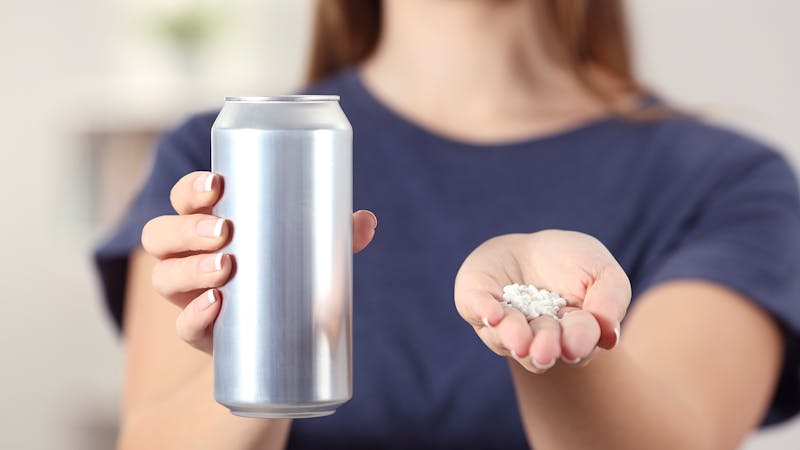
Many people replace sugar with artificial sweeteners in the belief that this will reduce their calorie intake and cause weight loss. It sounds plausible. Several studies, however, have failed to show any positive effect on weight loss by consuming artificial sweeteners instead of plain sugar.
Instead, according to scientific studies, artificial sweeteners can increase appetite and maintain cravings for sweet food. And one recent independent study showed that switching drinks with artificial sweeteners to water clearly helped women lose weight:
Study: Avoiding diet beverages helps women lose weight
This could be because the body increases insulin secretion in anticipation that sugar will appear in the blood. When this doesn’t happen, blood sugar drops and hunger increases. Whether this chain of events regularly takes place is somewhat unclear. Something odd happened when I tested Pepsi Max though, and there are well-designed studies showing increased insulin when using artificial sweeteners.
Furthermore, artificial sweeteners can maintain an addiction to sweets and lead to snack cravings. And the long-term effects of consuming artificial sweeteners are unknown.
Studies claiming to show neutral or positive effects of sweeteners are usually funded by the beverage industry.
By the way, Stevia is marketed as a natural alternative to artificial sweeteners. That’s marketing talk. There is nothing natural about a processed super-sweet white powder like Stevia.
If you’re having trouble losing weight, I suggest that you completely avoid sweeteners. As a bonus you’ll soon start to enjoy the natural sweetness of real food, once you’re no longer adapted to the overpowering artificial sweetness of junk food and “diet” sodas.
 Full low-carb sweeteners guide
Full low-carb sweeteners guide
Sugar addiction
Do you find the idea of avoiding sweeteners almost impossible to imagine? Addiction to sugar and carbohydrate-rich foods is very common, but it’s possible to overcome. Check out our video course with addiction specialist Bitten Jonsson, RN
What Is Sugar Addiction? – Bitten Jonsson06:35Bitten Jonsson's sugar-addiction course part 1: Insights and advice on how you can stop food and sugar cravings.
Read more about artificial sweeteners
10. Review any medications
Many prescription drugs can stall your weight loss. Discuss any change in treatment with your doctor. Here are the worst three:
- Insulin injections, especially at higher doses, are probably the worst obstacle for weight loss. There are three ways to reduce your need for insulin:
A. Eat fewer carbs, which makes it a easier to lose weight. The fewer carbs you eat the less insulin you need. Remember to lower your doses if you can.
B. If this isn’t enough, treatment with Metformin tablets (at a dose of 2–3 grams/day) can decrease the need for insulin (at least for type 2 diabetics).
C. If this is not enough to get off insulin (again, for type 2 diabetics) you could try newer promising drugs like Victoza or Byetta. These reduce the need for insulin and cause weight loss. 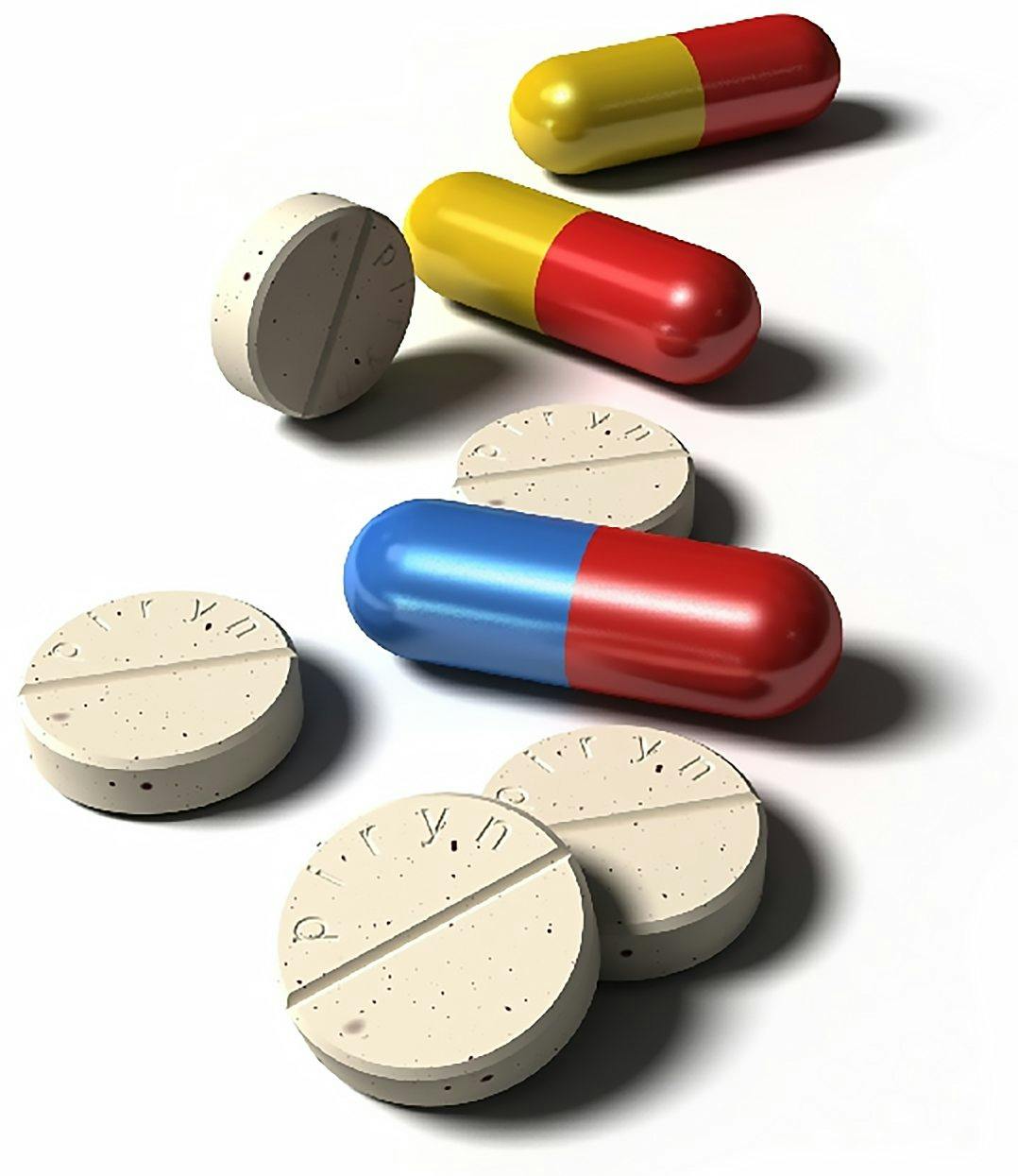 Other diabetes medications. Insulin-releasing tablets (e.g. sulphonylureas) often lead to weight gain. These include: Minodiab, Euglucon, Daonil, and Glibenclamide. Tablets like Avandia, Actos, Starlix and NovoNorm also encourage weight gain. But not Metformin. The newer drugs Victoza and Byetta (injectable) often lead to weight loss, but possible long-term side effects are still unknown. More on diabetes
Other diabetes medications. Insulin-releasing tablets (e.g. sulphonylureas) often lead to weight gain. These include: Minodiab, Euglucon, Daonil, and Glibenclamide. Tablets like Avandia, Actos, Starlix and NovoNorm also encourage weight gain. But not Metformin. The newer drugs Victoza and Byetta (injectable) often lead to weight loss, but possible long-term side effects are still unknown. More on diabetes- Cortisone as an oral drug is another common culprit (e.g. Prednisolone). Cortisone often causes weight gain in the long run, especially at higher doses (e.g. more than 5 mg Prednisolone per day). Unfortunately, cortisone is often an essential medication for those who are prescribed it, but the dose should be adjusted frequently so you don’t take more than you need. Asthma inhalers and other local cortisone treatments, like creams or nose sprays, hardly affect weight.
These other medications can also cause problems:
- Neuroleptics/antipsychotic drugs, can often encourage weight gain. Especially newer drugs like Zyprexa (Olanzapine).
- Some antidepressant medications can cause weight gain, especially the older tricyclic antidepressants (TCAs) such as Tryptizol, Saroten, and Clomipramine; as well as newer drugs such as Remeron (Mirtazapine). Lithium (for manic-depressive disorder) often causes weight gain. The most common antidepressants known as SSRI’s (for example Citalopram and Sertraline) usually don’t impact weight significantly. More on depression
- Some contraceptives often contribute to a slight weight gain, especially those that contain only progesterone and no estrogen, for example the mini-pill, the contraceptive injection, or a contraceptive implant. More on fertility
- Blood pressure medication in the form of beta blockers can cause weight gain. These drugs include: Seloken, Metoprolol and Atenolol. More on high blood pressure
- Epilepsy drugs may cause weight gain (e.g. Carbamazepine and Valproate).
- Allergy medications, antihistamines can cause weight gain, especially at high doses. Cortisone is even worse (see above). More on allergies
- Antibiotics can possibly lead to a temporary weight gain by disturbing the gut microbiota and increasing the amount of energy we absorb from food. This is still speculative for humans but it’s another reason not to use antibiotics unless you truly need it.
11. Stress less, sleep more

Have you ever wished for more hours of sleep, and a less stressful life in general? Most people have – stress and lack of sleep can be bad news for their weight.
Chronic stress may increase levels of stress hormones such as cortisol in your body. This can cause increased hunger and result in weight gain. If you’re looking to lose weight, you should review possible ways to decrease or better handle excessive stress in your life. Although this often demands substantial changes, even altering small things – such as posture – may immediately affect your stress hormone levels, and perhaps your weight.
You should also make an effort to get enough good sleep, preferably every night. Strive to wake up refreshed of your own accord, independently of the alarm clock. If you’re the kind of person who always gets brutally woken up by the alarm ringing, you might never be giving your body adequate rest.
One way to combat this is to go to bed early enough for your body to wake up autonomously before the alarm clock goes off. Letting yourself get a good night’s sleep is another way of reducing stress hormone levels.
Sleep deprivation, on the other hand, comes hand in hand with sugar cravings. It also has an adverse effect on self-discipline and makes it painfully easy to give in to temptation (it’s no coincidence that induced sleep deprivation is a common interrogation technique). Similarly, sleep deprivation weakens your resolve to work out.
Sleep issues?
Do you have trouble sleeping even if there’s ample time for it? Here are five tips from an expert:
- Stick to the same bedtime every evening. In the long run, this will help your body prepare for sleep at that time.
- No coffee after 2 pm. Just don’t – and remember that it takes time for caffeine to leave your body.
- Limit your alcohol intake to three hours before bedtime. While booze might make you woozy, it worsens quality of sleep.
- Limit exercise in the four hours before bedtime. Physical activity can make you wound up and make it difficult to go to sleep for several hours afterwards.
- Get 15 minutes of sunlight every day. This is good for your circadian rhythm (your “body clock”).
Finally, make sure that your bedroom is dark enough, and stays at a pleasant temperature. Sleep well!
Difficult, but worthwhile
Many may find the above guidelines difficult to follow, perhaps because of a lack of time (or the equivalent – small children!). But stressing less and sleeping more doesn’t just feel good. It can also play a part in helping you get leaner.
Read more about the benefits of sleep
12. Eat less of dairy products and nuts
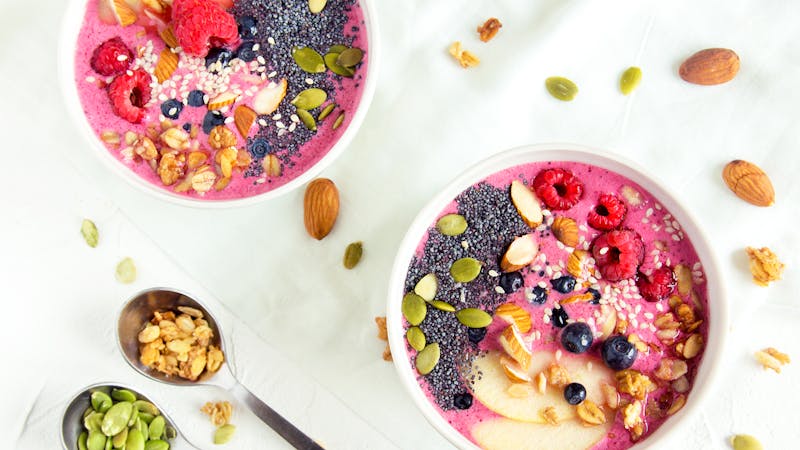
Can you eat as much as you like, and still lose weight? Yes, it tends to work just fine with a low-carbohydrate diet, as appetite regulation happens effortlessly.
However, despite the fact that a low-carbohydrate diet generally makes it easy to eat just enough, there are foods classified as low carb which become a problem in larger quantities. If you find yourself having a hard time losing weight on a low carb diet, you could try to be more careful with:
- Dairy products (yogurt, cream, cheese)
- Nuts
Dairy products contain varying amounts of lactose (milk sugar), which slows down weight loss. What’s more, part of the protein in milk generates a significant insulin response, which can have the same effect. Consequently, cutting back on dairy products may accelerate weight loss. This applies especially to dairy products typically lacking in fat, such as regular milk and various yogurts, but be careful with full-fat dairy such as cream and cheese all the same. And don’t forget whey protein powder, which is pure milk protein.
Exempt from all these dairy-product warnings is butter, which is almost pure fat. Butter may be consumed liberally as desired.
Low-carb and dairy-free recipes
Nuts, the second food to watch, contain a fair amount of carbohydrate, and it’s very easy to unwittingly scarf down large quantities. Cashew nuts are among the worst carb-wise – you’ll find that they contain around 20% carbohydrate by weight. For someone following a strict keto diet with a 20 grams of carbs per day allowance, this means that consuming 100 grams (which happens in a flash!) will have filled their daily quota. Peanuts tend to be around 10-15% carbohydrate – not putting them in the clear either.
So, for those of you having trouble losing weight: use nuts sparingly. When in a situation where nuts are an absolute must, know that the most harmless ones carb-wise are macadamia nuts (usually around 5% carbs), or Brazil nuts (4%).
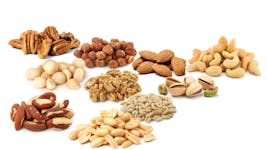 Low-carb nuts – the best and the worst
Low-carb nuts – the best and the worst
13. Supplement vitamins and minerals
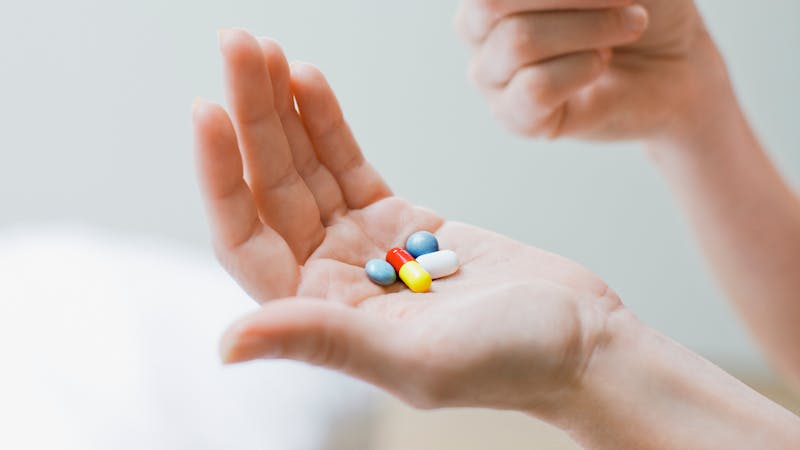
Your body needs a certain amount of essential vitamins and minerals to function properly. What happens when you don’t get enough of them? What happens when you eat too little food, or when the food you eat isn’t sufficiently nutritious? Perhaps our bodies catch on and reply by increasing hunger levels. After all – if we eat more, we increase the chances of consuming enough of whatever nutrient we are lacking.
On the other hand, reliable access to vitamins and minerals could perhaps mean decreased hunger levels and decreased cravings, thereby promoting weight loss.
The above is, of course, speculation. But there are well-performed studies which suggest it might not be far from the truth.
Vitamin D
A lack of vitamin D is probably the most common deficiency in northern countries such as Canada, or most of the US. Three recent studies indicate that, when compared to a placebo, a vitamin D supplement can decrease your fat weight or waist measurement [1 2 3].
In one of the studies, 77 overweight or obese women received either a supplement of 1000 units of vitamin D, or a placebo, every day for 3 months. Those who took the vitamin D supplement decreased their body fat by 2.7 kg (6 pounds) – significantly more than the placebo group, who hardly decreased their fat weight at all.
Multivitamins
A study from 2010 involved around a hundred women with weight issues, separating them into three groups. One group received a daily multivitamin supplement, the other a daily calcium supplement, and the last group only a placebo. The study went on for six months.
Unsurprisingly, the results showed that nothing had happened to the weight of the women receiving calcium or the placebo. However, the group which took the multivitamin lost more weight – about 3 kg more – and improved their health markers. Among other things, their basal metabolic rate (the rate at which the body burns calories when at rest) increased.
Furthermore, another earlier study found that subjects decreased hunger levels by taking multivitamin supplements during starvation diets, compared to a placebo.
Conclusion
Nutrient-dense, good food is certainly the foundation of weight loss. But an adequate amount of vitamin D can be difficult to ingest via food. In the case of a lack of sun (such as during the darker months of fall and winter), it’s wise to supplement for multiple health reasons – and perhaps even for your weight.
If you’re overweight and not entirely sure that your diet provides enough nutrients, it may be worthwhile to take a multivitamin pill. Unfortunately, they still contain only minimal doses of vitamin D, so you need both for the full effect.
14. Use intermittent fasting
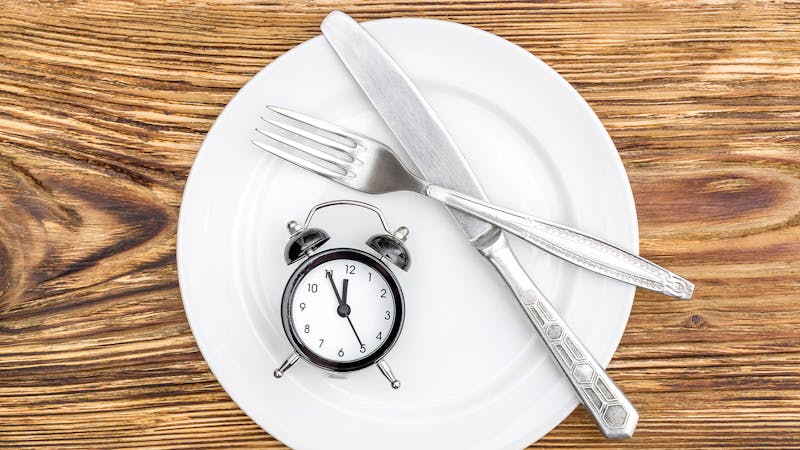
There are many things to consider before moving on to this tip #14, but don’t let this fool you. This is one of the most effective weapons available to lose weight. It’s perfect if you are stuck at a weight-loss plateau despite “doing everything right” – or to speed up your weight loss.
This super weapon is called intermittent fasting. It means exactly what it sounds like… not eating, during a specified time interval.
Recommended first option – 16:8
Probably the most popular option is fasting for 16 hours (including sleep), which is usually easy to do on a keto diet. It only requires trading breakfast for a cup of coffee (or some other non-caloric fluid) and having lunch as the first meal of the day. Fasting from 8 pm to 12 noon – for example – equals 16 hours of fasting.
Of course there are many other versions of intermittent fasting, but this 16:8 method (16 hours of not eating with an 8-hour eating window) is the one I recommend as a first option. It’s effective, easy to do and does not require counting calories.
You can do a 16:8 fast as often as you like. For example twice a week, or on weekdays only… or every single day. The more often you do it, the more effective it is.
In fact, on a keto diet some people spontaneously fall into this habit, as their appetite is reduced (see weight loss tip #4, eat only when hungry).
Other kinds of intermittent fasting
There are many other options. Basically, the longer periods are harder to do but more effective. Here are two more common options:
- Fasting for 24 hours (often dinner – dinner) once or twice a week. Effective and can be surprisingly easy to do, especially on a keto diet.
- The 5:2 diet. Eat as much as you need to feel satisfied 5 days of the week and then eat calorie-restricted on two days (500 calories per day for women, 600 calories for men). I don’t recommend this as it requires calorie counting and more planning, but some people still find they enjoy it.
What about eating when hungry?
Doesn’t advice on intermittent fasting contradict the advice to eat when hungry? Yes it does, somewhat.
I recommend eating when hungry as a first option, and I recommend always eating until you feel satisfied at meals. But if this is not effective enough, then intermittent fasting is a very powerful addition. Remember – and this is crucial – that between fasting periods you’re still supposed to eat until satisfied.
Intermittent fasting is not the same thing as obsessively counting calories and starving yourself 24-7, i.e. “caloric restriction as primary” (CRaP) diets. Starving yourself is a recipe for misery and failure.
Intermittent fasting is about eating all that your body needs… while still allowing it to sometimes briefly rest from constant feeding.
What’s acceptable to drink during fasts?
During a fast you can’t eat, but you should definitely drink. Water is the drink of choice, but coffee and tea are also great options. During longer fasts it can be wise to add a little salt too, or drink bouillon.
Anything you drink should ideally be zero calories. But it may be acceptable to cheat by adding a small amount of milk in your coffee or tea – if you absolutely need it to enjoy your drink.
What to eat between fasts
So what should you eat when you are not fasting? Well, if your goal is to lose weight, I suggest following all the tips above, including eating a keto diet. Combining this with intermittent fasting is a great combination.
On a low-carb diet your hunger is reduced and it’s much easier to do a period of fasting. Also, your fat burning is already very good – so when fasting you’ll easily burn lots of fat.
So, while on a low-carb diet the fasting periods become both easier to do and more effective. 1 + 1 equals 3.
Who should not do intermittent fasting
Intermittent fasting can be a great idea, but not everyone should do it:
- If you are addicted to food or sugar then intermittent fasting may increase food cravings and increases the risk of a relapse… so be very careful. I recommend always eating when hungry.
- If you are totally stressed out or sleep deprived then take care or that problem first (see weight loss tip #11) or fasting may be too stressful for your body.
- If you are on any medication – especially insulin – the doses may need to be adjusted when fasting. Discuss it with your doctor first.
- Growing children, pregnant women and breastfeeding women should not do longer fasting periods, as they have an increased need of nutrients. I recommend eating when hungry and using the 14 tips above if you need to lose weight.
More
Intermittent fasting for beginners
Video
For more on fasting check out our material with our top fasting expert, Dr. Jason Fung:
What is Fasting? – Dr. Jason Fung05:21Dr. Fung's fasting course part 1: A brief introduction to intermittent fasting.
How to Maximize Fat Burning – Dr. Jason Fung03:52Dr. Fung's fasting course part 2: How do you maximize fat burning? What should you eat – or not eat?
How to Fast – The Different Options – Dr. Jason Fung06:47Dr. Fung's fasting course part 3: Dr. Fung explains the different popular fasting options and makes it easy for you to choose the one that fits you best.
The 7 Benefits of Fasting – Dr. Jason Fung07:33Dr. Fung's fasting course part 4: About the 7 big benefits of fasting intermittently.
The Top 5 Myths of Fasting – Dr. Jason Fung08:23Dr. Fung's fasting course part 5: The 5 top myths about fasting – and exactly why they are not true.
Breakfast! Is It Really That Important? – Dr. Jason Fung07:08Dr. Fung's fasting course part 6: Is it really that important to eat breakfast?
The Perfect Treatment for Weight Loss and Diabetes – Dr. Jason Fung45:20Do doctors treat type 2 diabetes completely wrong today – in a way that actually makes the disease worse?
The Key to Obesity – Dr. Jason Fung44:22How insulin toxicity causes obesity and type 2 diabetes – and how to reverse it. Dr Jason Fung at the LCHF Convention 2015.
15. Exercise wisely

Do you wonder why this weight-loss tip doesn’t show up until number 15 on the list? It’s because few things are so overrated for weight loss as exercise is.
3
Have you ever watched “The Biggest Loser”? The participants take leave from their jobs (and family) for months. They are allowed only small portions of food, and work out as though it were their full-time job – 40 hours a week, sometimes more. This method is clearly unsustainable for the average person in the long run.
Just taking the stairs instead of the elevator, or getting off the bus one stop earlier, isn’t going to change the numbers on your bathroom scale. It’s a myth. Sorry. Studies show that if you just start exercising, you’re going to need at least one hour of tough workouts every single day to noticeably lose weight.
Basically, the effect of exercise on our weight is vastly overrated. That’s why it’s only number 15 on this list. There are other things you need to take care of first. It’s not a good idea to eat bad food, drink sugar water (so-called “sports drinks”) or be on medications which force you to exercise for hours daily just to compensate. Metaphorically that’s like digging a hole, into which you put your ladder, on which you stand and paint the basement-level windows of your house.
Exercise cannot compensate for other issues in your life. Those must be addressed first.
The good news
If, on the other hand, you’ve already taken care of steps 1-12, you should have a rested and recharged body which is already happily burning fat. In this case, increased activity will accelerate your weight loss, and act as a nice bonus. You’ll be burning even more fat from the very first step.
For example, you could take long walks (golf), cycle, dance, or play any sport you’re happy and comfortable with.
Exercise also burns the body’s glycogen stores, which are essentially carbohydrates. This means that after a workout, you can eat a little more carbs than you otherwise can permit yourself, without negative effects on insulin or fat storage. Also, don’t forget that the non-weight-related health effects of exercise are quite impressive.
Hormonal effects
For even more impressive effects on body composition: aim for exercise forms which elicit a positive hormonal response. This means lifting really heavy things (strength training), or interval training. Such exercise increases levels of the sex hormone testosterone (primarily in men) as well as growth hormone. Not only do greater levels of these hormones increase your muscle mass, but they also decrease your visceral fat (belly fat) in the long term.
As a final bonus, exercise can both make you feel and look better.
What kind of activity fits you?
16. Achieve optimal ketosis
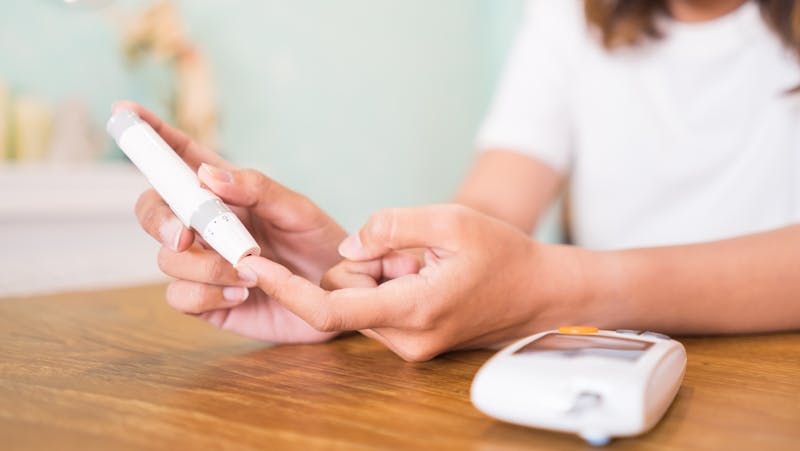
Warning: Not recommended for type 1 diabetics, see below.
We’ve now arrived at tip number 16. If you’re still having trouble losing weight, despite following the 15 pieces of advice listed above, it might be a good idea to bring out the heavy artillery: optimal ketosis. Many people stalling at weight plateaus while on a low-carb diet have found optimal ketosis helpful. It’s what can melt the fat off once again.
So how does this work? A quick run-through: The first tip was to eat low carb. This is because a low-carb diet lowers your levels of the fat-storing hormone insulin, allowing your fat deposits to shrink and release their stored energy. This tends to cause you to want to consume fewer calories than you expend – without hunger – and lose weight. Several of the tips mentioned above are about fine-tuning your diet to better this effect.
How do you know you’re getting the maximum hormonal impact from your low-carb diet? You do that by achieving what’s known as “optimal ketosis”.
Ketosis
Ketosis is a state where the body has an extremely high fat-burning rate. Even the brain runs on fat, via ketone bodies. These are energy molecules in the blood (like blood sugar) which become fuel for our brains after being converted from fat by the liver.
To encourage ketone production, the amount of insulin in your bloodstream must be low. The lower your insulin, the higher your ketone production. And when you have a well-controlled, sufficiently large amount of ketones in your blood, it’s basically proof that your insulin is very low – and therefore, that you’re enjoying the maximum effect of your low-carbohydrate diet. That’s what’s called optimal ketosis.
Measuring ketones
Today, there are reasonably-priced gadgets available for measuring ketone levels at home. One needle prick of the finger, and in just a few seconds you’ll know your blood ketone level.
Blood ketones are best measured on a fasted stomach in the morning (before breakfast, that is). Here are a few pointers on how to interpret the result:
- Below 0.5 mmol/L is not considered “ketosis”. At this level, you’re far away from maximum fat-burning.
- Between 0.5-1.5 mmol/L is light nutritional ketosis. You’ll be getting a good effect on your weight, but not optimal.
- Around 1.5-3 mmol/L is what’s called optimal ketosis and is recommended for maximum weight loss.
- Numbers over 3 mmol/L aren’t neccessary. That is, they will achieve neither better nor worse results than being at the 1.5-3 level. Higher numbers can also sometimes mean that you’re not getting enough food. For type 1 diabetics, this can be caused by a severe lack of insulin, see below.
Ketones in urine
Ketone levels can also be measured in a more old-fashioned way, with urine test sticks (sold prescription-free in pharmacies or on Amazon
4
). Ketone sticks give less reliable results for several reasons, and the above recommendations can’t be straightforwardly applied to them. They are, however, much cheaper.
My personal experience
Feel free to read my accounts of a two-month personal trial:
- Experiment: Optimal ketosis for weight loss and increased performance
- Four weeks of strict keto and ketone monitoring
- Final report: Two months of strict keto and ketone monitoring
Although I was quite happy with my weight before these trials, they resulted in a further loss of 4.5 kg (10 pounds) and 7 cm (3 inches) around my waist – without additional exercise or even the slightest resemblance of hunger.
How to achieve optimal ketosis
Many who firmly believe they are eating a strict low-carb diet are surprised when they measure their blood ketones. They may be at around only 0.2 or 0.5 – quite far off from the sweet spot! Why?
The trick here is not only to avoid all obvious sources of carbohydrate (sweets, bread, spaghetti, rice, potatoes), but also to be careful with your protein intake. If you eat large amounts of meat, eggs and the like, the excess protein will be converted into glucose in your body. Large amounts of protein can also raise your insulin levels somewhat. This compromises optimal ketosis.
The secret to getting around this is usually to eat your fill with more fat. For example, if you have a bigger helping of herb butter to your steak, you might not feel like having a second steak, and instead feel satisfied after the first one.
A popular trick people use to ingest more fat is “fat coffee” (sometimes called “Magic Bullet Coffee” or MBC). It involves adding one tablespoon of butter and one tablespoon of coconut oil to your (morning) coffee, and requires a food blender for the right texture.
More fat in your food will fill you up more. This will ensure that you eat less protein, and even fewer carbohydrates. Your insulin will drop and, hopefully, you’ll be able to reach optimal ketosis. And that’s when many a stubborn weight plateau is overcome.
If it doesn’t work
Being in optimal ketosis for a prolonged period of time (say, a month) will ensure that you experience the maximal hormonal effect from eating a low-carb diet. If this doesn’t result in noticeable weight loss, you can be certain that too many carbs are NOT part of your weight issue and not the obstacle to your weight loss. There are, in fact, other causes of obesity and being overweight. The next three tips in this series might help you.
Try it
Order a ketone meter online and start measuring. There are a few different models, the most popular one is probably the Precision Xtra ketone meter. Unfortunately these meters are all quite expensive to use, as the test strips can cost about $5 per test.
5
with everything you need to check your blood ketone levels.
More
Learn much more about ketogenic diets here:
A quick guide to ketogenic diets
Watch my video interview with the American doctor Peter Attia, on a strictly ketogenic low-carb diet: Very Low Carb Performance
A word of warning
If you have type 1 diabetes, you should not follow the above advice on optimal ketosis – it may be risky. If you have ketones in your blood at all, you must be sure that your blood sugar levels are normal. If they are, you’re in normal ketosis – just like the ketosis of non-diabetic people who stick to a strict low-carb diet.
High blood sugar levels coupled with high blood ketones, on the other hand, will mean that you have a pathologically low level of insulin – something non-diabetics do not suffer from. This can lead to ketoacidosis – a potentially life-threatening condition. If this happens, you’ll need to inject more insulin; if you’re at all unsure of what to do, contact a medical professional. Coveting really high blood ketones for weight control is not worth the risk for type 1 diabetics.
17. Get your hormones checked

So you’ve followed the previous tips, implemented major lifestyle changes and established that neither medication nor vitamin deficiency is an issue. You’ve even tried being in optimal ketosis for a while (ensuring low insulin levels). And you still can’t hit the normal weight mark?
If this applies to you, it’s high time to consider the possibility that hormonal imbalances are the cause of your troubles. There are three common problem areas:
- Thyroid hormone
- Sex hormones
- Stress hormones
Thyroid hormone
Some people, especially women, suffer decreased metabolism as a result of thyroid hormone deficiency – hypothyroidism. Common symptoms are:
- Fatigue
- Cold intolerance
- Constipation
- Dry skin
- Weight gain
In these cases, weight gain resulting from decreased metabolism usually do not exceed fifteen pounds.
Your doctor can easily arrange for you to take a blood test to measure the concentration of thyroid stimulating hormone (TSH). If the test comes back and everything looks good, your thyroid gland is probably fine. For a more exact diagnosis, you can ask them to measure the actual levels of thyroid hormones in the blood (T3 and T4).
Two ways to avoid becoming deficient in thyroid hormone:
- Make sure you consume enough iodine, which is a building block of thyroid hormone. Good sources are fish, shellfish and iodised salt (or sea salt).
- Very low levels of thyroid hormone usually indicate an autoimmune reaction to the thyroid gland itself. This means you’ll have to take thyroid hormone supplements orally, usually the stable form T4 (Levaxin), which your doctor can prescribe for you. Your body will transform this into the active T3 hormone when necessary. The supplement dose should be adjusted so that you reach normal hormone levels (TSH, T3, T4) and sufficiently alleviate symptoms – though a few people feel best when keeping TSH slightly below normal.
Some people feel better supplementing the already active T3 (sometimes prepared from pig thyroid glands), as it can give a stronger effect than the T4 hormone, but its effect is often harder to control. Swedish healthcare rarely prescribes or offers such T3 treatment, as it often lacks advantages and may pose a risk when doses are high for an extended period of time.
Sex hormones
Sex hormones also affect your weight:
Women: Women can suffer from the endocrine disorder PCOS – polycystic ovarian syndrome – which elevates testosterone and insulin levels. This can mean weight gain and menstrual disorders (very common), infertility, acne and male pattern hair growth (such as facial hair). A low-carbohydrate diet is a good treatment for this. More on PCOS.
During menopause, a woman’s level of the female sex hormone estrogen drops. This often causes some weight gain, especially around the gut (so-called central obesity). Excess weight gained after menopause will tend to be proportioned less like for a fertile woman, less curvy.
Learn more:
Top 10 tips to lose weight on low carb for women 40+
Men: From middle age and onwards, men experience gradually declining levels of the male sex hormone testosterone. This leads to slight weight gain, also typically around the gut, and decreased muscle mass.
What can you do about sex hormones?
Testosterone deficiency can be at least partially treated naturally by engaging in smart exercise routines and supplementing vitamin D.
Of course, you can also affect testosterone levels by getting your doctor to prescribe a testosterone supplement (a blood test will confirm any deficiency). Women can use estrogen supplementation for menopause problems.
It’s important you take into account, however, that supplementation of testosterone or estrogen for years on end, in doses that are abnormally large for your age, will increase the risk of prostate cancer (in men) and breast cancer (in women).
It may be wise to accept that you don’t (and shouldn’t!) have the body of a 20-year-old when you’re several times that age. A better option might be to try to focus on a healthy lifestyle instead, and to be as happy and grateful as you can for the body you have.
Stress hormone
The final possible culprit behind stubborn weight issues may be the stress hormone, cortisol. Too much cortisol will increase hunger levels, bringing along subsequent weight gain. The most common cause of elevated cortisol is chronic stress and lack of sleep (see tip #10), or cortisone medication (tip #9). It’s a good idea to try your best to do something about this.
In rare and extreme cases, you could be dealing with a specific kind of tumor that drives cortisol production. The condition is called Cushing’s syndrome. If you suspect you’re suffering from this, consult your doctor and they will run appropriate tests.
18. Consider weight-loss pills (if desperate)
It sounds like a dream. Keep living like you already do, take a pill a day, and effortlessly lose your excess weight. This is why weight-loss pills is a billion dollar industry.
So do they work? Yes. But they’re not very effective.
There are many drugs that result in a modest weight loss (a few pounds on average) at the expense of significant side effects. In my opinion there’s only one drug that you may want to consider using.
Before we get to that one drug we’ll very briefly summarize the other options and why they are not great.
Prescription-free supplements

The internet is full of claims of magic supplements that can make you thin. Unfortunately, the only thing they’ll make thin is your wallet. This is true even if they were once mentioned on Dr. Oz – you know that’s an entertainment show, right?
Any prescription-free supplements for sale that are not dangerous or illegal (like steroids) are likely to have a small or negligible effect on your weight.
This is true even for the vitamin supplements mentioned in advice #13 – the effect is definitely small, but in that case it’s also safe – maybe even healthy – and also dirt cheap, making it a potentially smart bonus (note that we sell no supplements whatsoever and make no money from this piece of advice).
There are also prescription free “carb blockers” out there, that are supposed to stop the body from absorbing carbs we eat. The effect tend to be relatively tiny though, even in studies funded by the companies selling the products. It’s definitely at least ten times more effective to not eat the carbs in the first place (it’s also free).
Older appetite suppressants
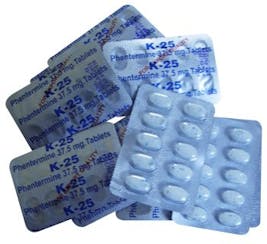 In the US, it’s still possible to get amphetamin-like appetite suppressants prescribed for short-term use (weeks). As they are only for short-term use they are no use for long-term weight control. These drugs are not approved in the EU.
In the US, it’s still possible to get amphetamin-like appetite suppressants prescribed for short-term use (weeks). As they are only for short-term use they are no use for long-term weight control. These drugs are not approved in the EU.
These drugs have side effects like insomnia, heart palpitations and elevated blood pressure. It’s also possible to become addicted to them and thus they require a special controlled-substance prescription. Examples include:
- Adipex-P or Suprenza (Phentermine)
- Bondril (Phendiametrazine)
- Didrex (Benzphetamine)
The effect of these drugs is decidedly modest and short term, hardly outweighing their risks. I do not recommend them.
The “oily discharge” pill
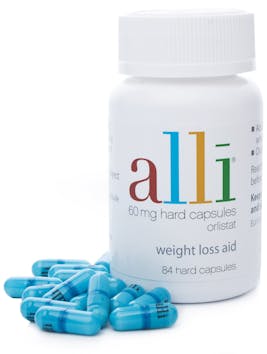
Let’s move on to another older drug, Xenical, lately for sale prescription-free as “Alli” and with a falling popularity.
This drug prevents the body from digesting fat in the intestines. Instead it just passes through you and ends up in the toilet… or in your pants.
Side effects include stomach cramping, gas, leaking oily stool and being unable to control bowel movements. And finally the “oily discharge” that often results when people think they are just passing some gas.
This pill is not compatible with wearing white pants and it’s not compatible with eating fat. Thus it’s not compatible with a low-carb diet. This does not mean you have to a wear white pants on a low-carb diet, you just need to eat fat (you understood that already, right?).
Just forget this drug. Most doctors already have.
The stupid pill
 Is there a worse option than Xenical/Alli? Why, yes. It’s called Qsymia.
Is there a worse option than Xenical/Alli? Why, yes. It’s called Qsymia.
Qsymia is available in the US, but it got rejected in Europe (where the side effects were sensibly judged worse than the benefits). I prefer to label this drug the “stupid pill”.
Qsymia combines a tiny amount of the old Phentermine (see Appetite Suppressants above) with a small dose of Topiramate, an anti-seizure drug.
The real problem? Common side effects of topiramate include drowsiness, fatigue, depression, attention disturbance, memory impairment, cognitive disorder, impaired psychomotor skills (i.e. becoming clumsy), lethargy, balance disorder, sedation, gait abnormality (i.e. walking like you’re drunk).
Basically, this drug slows down your brain, like alcohol or sedatives. Are you really going to do that to lose a few pounds, that you’ll regain once you stop taking the drug?
The “meh” pills
Two more weight control drugs were approved in the US in 2012 and are now available, Belviqand Contrave.
Belvic has been rejected in Europe because of safety concerns. Contrave was recently approved (under the name Mysimba).
These two drugs work on different receptors in the brain to control appetite. The effect is modest – 6 to 8 pounds lost in a year, with partial regain after that. There are ongoing safety concerns with both drugs and a definite risk of side effects like (for Contrave) nausea, constipation, headache, risk of suicidal thoughts and seizures.
To me, these modest benefits do not outweigh the risk of side effects.
The reigning champion
And then there is only one more approved weight loss drug left. Fortunately this one actually shows a lot of promise and can speed up weight loss quite significantly.
This drug is an injected variant of a satiety hormone called GLP-1. It slows down how quickly the stomach empties and tells the brain that you don’t need to eat yet – a great idea for losing weight. As a bonus this drug works fine while one is on the keto diet and it works even better with intermittent fasting – for a rapid weight loss with no hunger.
This drug was initially used to control blood sugar in type 2 diabetes – under the brand name Victoza – where it has the nice side effect of significant weight loss.
Testing on people with obesity (without diabetes) shows that at higher doses the drug is quite effective as a pure weight loss treatment, with patients losing on average 12.3 pounds (5.6 kilos) more than a placebo group after one year.

This drug has recently been approved in both the US and in Europe for weight loss, under the name Saxenda. There are many other similar GLP-1 drugs for treating diabetes type 2, but none of them have been carefully tested or approved for treating obesity yet.
Saxenda is already available at the fantastic cost of about $1,000 per month.
In both the US and in Europe another option is Victoza, which is the exact same drug at half the dose and half the price. At this lower dose the resulting weight loss is about 75% of the weight loss when one is on Saxenda. Victoza is approved only for treating type 2 diabetes.
The main side effect of Saxenda / Victoza is what happens if the satiety effect becomes too strong: nausea and vomiting. This is quite common when starting out, so it’s necessary to start with a low dose and then slowly increase it as the body adapts to the medication.
The bonus
If you have type 2 diabetes there is another diabetes drug that can result in noticeable weight loss: the “low-carb in a pill” drug Farxiga (called Forxiga in Europe).
The bottom line
There is no pill that easily makes people thin. These drugs are all pretty bad or at least not very effective.
The only exception in my mind is Saxenda – and this is a daily injection, not a pill.
The downside to Saxenda is the very high price – insurance may only cover part of it – and the nausea that people often experience on it.
It’s also clear from my own and other people’s experience treating patients with it that it does not work well for everyone. Some people experience only minimal weight loss. Other people lose a lot more than the additional 12 pounds lost in a recent study – this is only an average.
Finally, Saxenda only works as long as you use it. Once you stop, the weight tends to return. So is losing about 12 pounds worth $1,000 per month and the risk of nausea? Only you can decide.
Most people who want to lose weight have more than 12 pounds to lose. That’s why even the best weight loss drug in the world can only be an optional complement to other treatment. That’s why this piece of advice is number 18 out of 18. It may be a helpful addition for some people, but the advice higher on the list is what can make the biggest difference, by far.






